Tomorrow is the start of my Christmas vacation. I will be leaving Lianga for a short time and that means that I may have to take a break from my daily excursions in to the digital landscape of the World Wide Web.
I would like to apologize to those who might be expecting to see some new posts to this blog during the next week or so. That may not be possible. I will try my best to be able to go online and get a post or two published but will make no promises.
But I hope to be back very soon and start blogging again. Merry Christmas to all.
Thursday, December 20, 2007
A Life Well Lived
In the more than 30 years he had practiced his profession in Lianga, countless stories of his exploits in the hospital operating room have been told and retold over and over again. Most of them have to do with his ability to do his best work even under the most difficult circumstances.
He did surgery under candlelight or with the aid of a flashlight whenever electricity was unavailable. He was often his own anesthesiologist because for many years there was no one else qualified to do that job for him. As a result he was lightning fast and would be finished with a case and out of the operating room in the time it would take another surgeon to scrub, dress in OR greens and make just the first cut in the same patient.
He was also unflappable and did not panic under the most trying conditions. And it was in those times of medical crises when a patient's life was in the balance when his cool head, decisiveness, resourcefulness and ability to quickly think through complex problems that made the difference in the struggle over life and death.
Outside the operating room, he was a brash and forthright man with a rather acerbic sense of humor yet he had many friends and was well liked and respected by all. For beneath the seemingly stern facade, was an idealist with a soft heart that was generous to a fault. He gave always more than he received and never regretted it.
His standing in the community made him an influential voice to be heard but he never envisioned himself in the role of a civic leader. He detested politics especially when his personal integrity clashed with the immorality or amorality of politicians in power. Then his voice could be heard speaking out loudly and fearlessly.
But he was first and foremost a healer and it was for this legacy he wanted to be remembered.
In the 11 years since he left us, there are still people who stop me on the street, either in Lianga itself or elsewhere, to wish me well and share stories about this man who was my father. In the end, they always say the same thing.
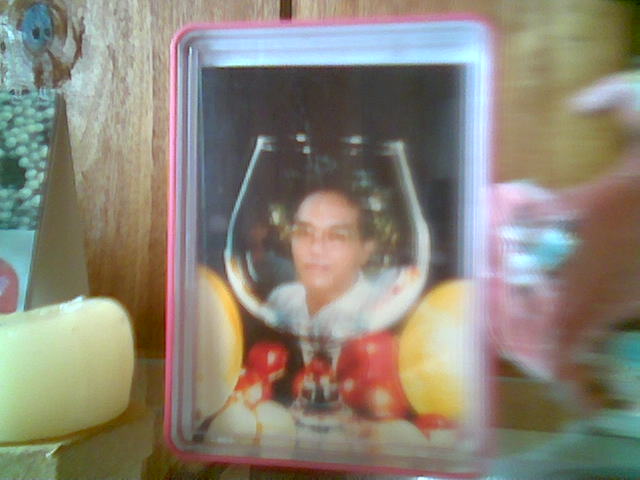 Many years ago, either they themselves or someone close to them was seriously ill or gravely injured. Whoever it was, he or she was brought to the hospital in Lianga and my father was able to help them. "Thank God for your father," they would say. "He saved a life that day and we will always remember what he did."
Many years ago, either they themselves or someone close to them was seriously ill or gravely injured. Whoever it was, he or she was brought to the hospital in Lianga and my father was able to help them. "Thank God for your father," they would say. "He saved a life that day and we will always remember what he did."Dr. Jose Y. Otagan was only 66 years old when he died in his sleep on December 20, 1996. It was not his fate to live to a ripe old age. But the quality of a life is never always measured solely by its longevity. What matters most is the way that life is lived.
In Papa's case, it was a life lived to the fullest.
Saturday, December 15, 2007
Humbug!
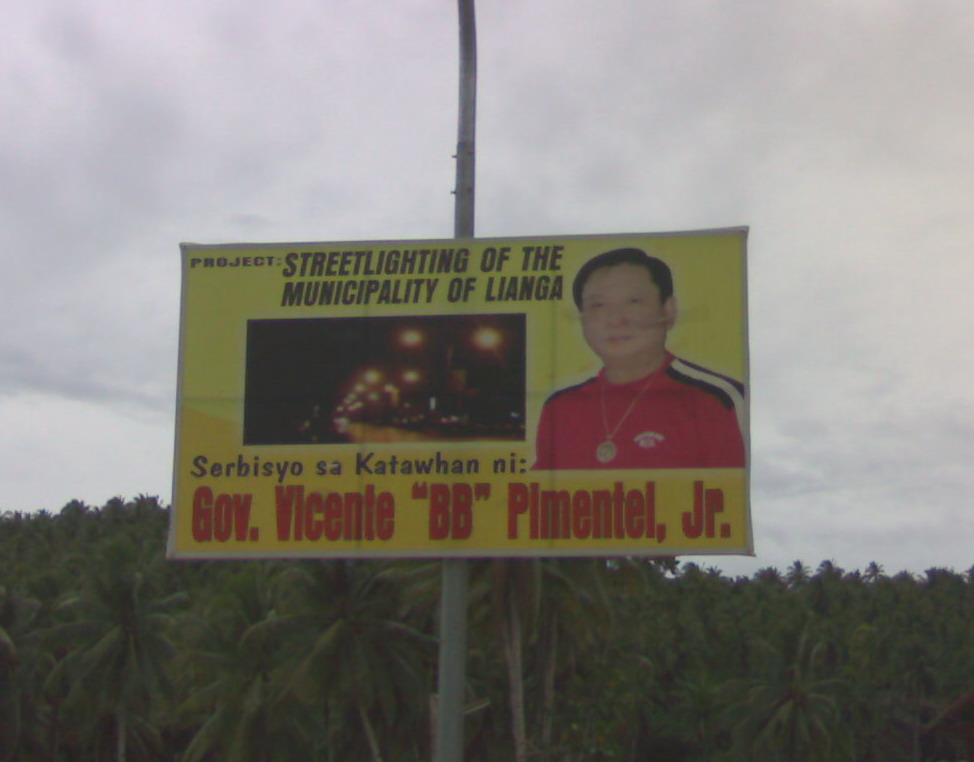 They are practically everywhere and can be as ubiquitous as the common cold during the rainy season.
They are practically everywhere and can be as ubiquitous as the common cold during the rainy season.Look for an on-going public infrastructure project or, even more so, a completed one, say a concrete road or public building, and for sure one is present. Check a newly acquired government vehicle, say for example a police patrol car, a hospital ambulance or firetruck, and you can cut off my head if you don't find one neatly stenciled on the vehicle's side panels.
The same also goes for mechanical, electrical or medical equipment of whatever kind and size. If it happens to be purchased in part or in full with public funds then you must have something like it prominently displayed somewhere on the unit itself.
What is it? Just signage, ranging from small, painted notices to huge billboard size posters complete with full color pictures and illustrations, proclaiming that such and such project or item has been built or acquired "through the efforts of......" or is "a priority project of....." President So-and-so, Governor So-and-so, Mayor So-and-so and so on and so forth. And beside the lettered proclamation, is often a full, colored portrait of the aforementioned official smiling benevolently at the world.
I am always at a loss to justify in my mind the need to spend the certainly not inconsequential sums of money on all this signs and notices. There is certainly no need or use for them.
It does not take an Einstein with a genius IQ to figure out that most if not all of these infrastructure works, vehicle or equipment acquisitions (including the signages too!) are funded with government taxes and revenues. No private money, in almost all instances, (most certainly not from the personal pockets of these public officials) is being spent.
So why is there this obsessive, compulsive and also costly need for elected officials to pat themselves on their backs for doing precisely what they have been elected to public office for? Which is to serve the public good and look after the welfare of all their constituents? Why the need for overstating the obvious?
The obvious truth is that this signages are prime examples of blatant political propaganda of the most tasteless yet insidious kind. What they seek is to indelibly imprint upon government projects and programs the individual political identities and personalities of political leaders and personalities.
These are then depicted as omnipotent and paternalistic father figures whose favor must be cultivated and courted because they can arbitrarily dispense public funds and initiate the much needed programs and projects their constituents so desperately need. Democratic institutions and processes, thus, become subordinated to the political machines and the personalities that run and dominate them.
What is then promoted is a corrupt political culture that not only tolerates political patronage (and the graft that results from it) but actually glorifies it or at the very least sugarcoats it so that it becomes palatable and acceptable to the electorate. The end result is a surrealistic situation where corrupt public officials enrich themselves in office while presenting (often effectively), by clever propaganda, a clean, solicitous and compassionate image to the public.
Stripped of propaganda value, however, these signages are, at best, narcissistic exercises in self-glorification serving no other purpose than only to inflate the egos of those whose faces and names they so prominently and so lavishly display. And at the expense of taxpayer too! How lucky can you get?
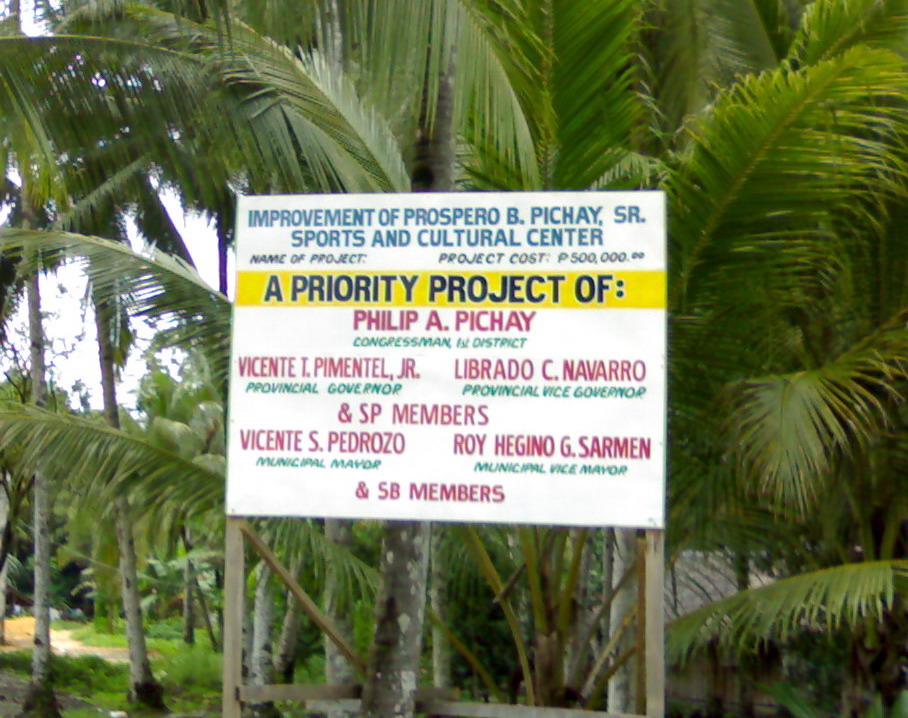 In many ways, these propaganda materials (for that is what they actually are) are symptomatic of the malaise that is deeply eating away at the foundations of the democracy we are supposed to be living under. So is the massive graft and corruption already deeply rooted in our political culture and the gradual yet relentless concentration of so much power and influence among the political and economic elite that has swept aside and rendered inutile and impotent the doctrine of public accountability among public officials.
In many ways, these propaganda materials (for that is what they actually are) are symptomatic of the malaise that is deeply eating away at the foundations of the democracy we are supposed to be living under. So is the massive graft and corruption already deeply rooted in our political culture and the gradual yet relentless concentration of so much power and influence among the political and economic elite that has swept aside and rendered inutile and impotent the doctrine of public accountability among public officials.In Lianga when I see billboards like the ones pictured here, I am instantly reminded of William Shakespeare and the Bard of Avon's succinct comments on those who brag too much about what they may have done or claimed to have done. He wrote, " We wound our modesty, and make foul the clearness of our deservings, when of ourselves we publish them."
Or better yet and on a more earthy and vulgar note, he also wrote, "It will come to pass that every braggart shall be found an ass." Now that is an eventuality I would very much like to come to pass.
The sooner the better.
Wednesday, December 12, 2007
Blood Thirst
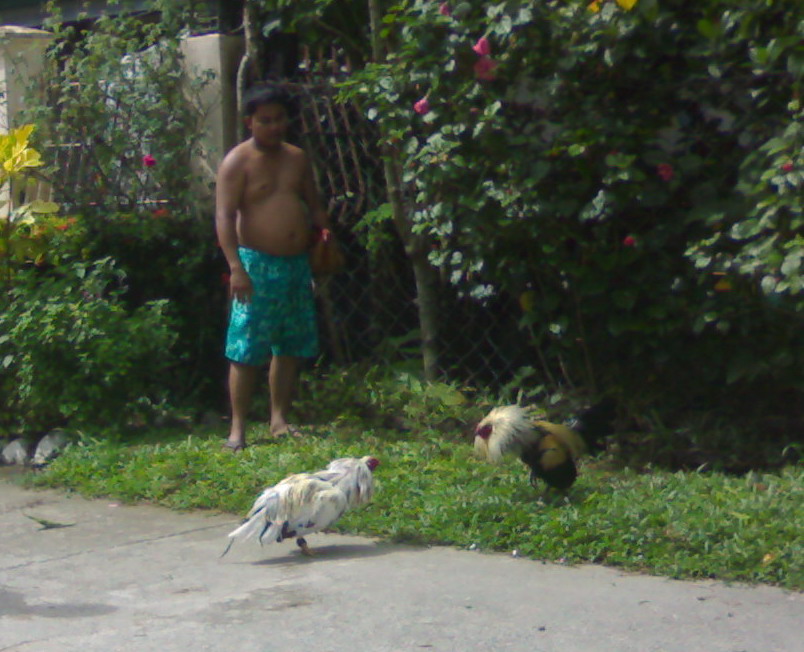 When my father was very much younger, he fancied fighting cocks and like many of his fellow cockfighting afficionados , he raised and even tried to breed them as a hobby. He cared for and pampered them then trained and conditioned them like prized athletes, and in many ways they were exactly that.
When my father was very much younger, he fancied fighting cocks and like many of his fellow cockfighting afficionados , he raised and even tried to breed them as a hobby. He cared for and pampered them then trained and conditioned them like prized athletes, and in many ways they were exactly that.They had only one purpose. To fight gloriously then win and live to fight again or die miserably on the hard packed dirt of the town cockpit already stained by the blood of their fellow fowls while a howling mob of human spectators clapped their hands, thumped their feet and screamed for blood and death.
I never did develop the same fascination or "addiction" to cockfighting but during the times when I did accompany my father to the cockfights and even later on when I did watch them out of curiosity, I also felt emotionally drawn, despite my reservations, in no small degree into this violent, bloody yet viscerally exciting sport, if we can call it that.
It's not just the betting that got to me (although to many spectators that is what it is all about) but something more. Perhaps it was the fact that something approaching ultimate dénouement, a climactic resolution of a drama of life and death was unfolding before me. Nothing really brings out the worst...... or the best in man than the illusion of his control over life and death over creatures he considers lesser than himself.
In many ways the cockpit is a modern version of the Roman Colosseum where death matches between gladiators were public spectacles. Only we are more civilized and more enlightened, thus we let animals do the fighting and the dying for us.
But it is the same bloodlust that filled the Colosseum to the rafters with spectators that drives us to the cockfights, the same addiction to the spectacle of violence and imminent death. The betting, even victory or defeat (despite what affictionados say) becomes incidental and often irrelevant. It is always the bloody spectacle that appeals most to the savage within us all.
In his later years my father gradually gave up his gamecocks and his visits to the town cockpit became fewer and fewer then finally ceased all together. He said that the whole thing was becoming more costly that he could afford.
I would like to think that he had developed a gradual aversion to the idea of cockfighting itself. Perhaps it was the soul of the healer and physician that was so strong in him that made him change his mind.
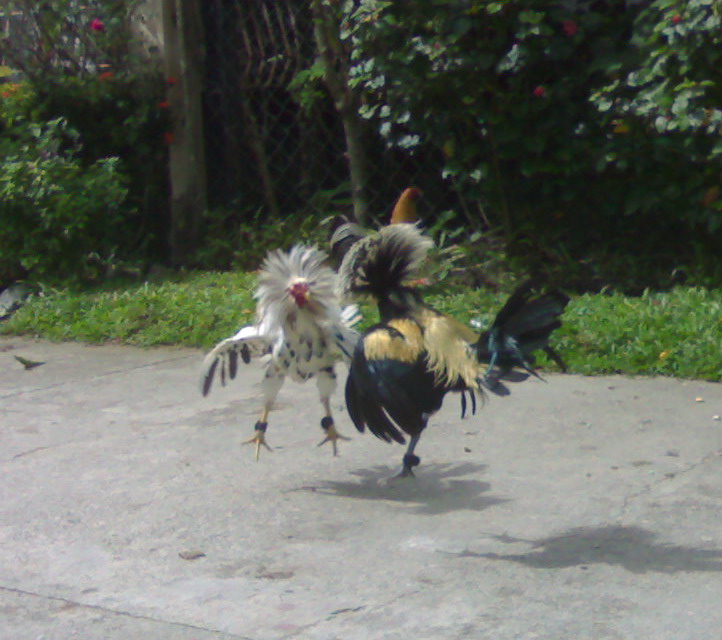 In the years that followed, all traces of his cockfighting past eventually disappeared. The cock pens and cages were dismantled and recycled for other uses. The gaffs, their bindings and all the other numerous bits and pieces of equipment that no self respecting cockfighting enthusiast can do without were all given away.
In the years that followed, all traces of his cockfighting past eventually disappeared. The cock pens and cages were dismantled and recycled for other uses. The gaffs, their bindings and all the other numerous bits and pieces of equipment that no self respecting cockfighting enthusiast can do without were all given away.I wondered then if he had harbored any regrets for doing what he did. If he did he gave no sign of it.
In my case, I was glad he gave it all up. The cockfights were were too bloody and barbaric for my taste. I prefer to indulge my inner savage nature by watching boxing matches and other contact sports on the television screen. The more contact and the more violent, the better.
That, in my view, is the more modern and civilized thing to do.
Sunday, December 9, 2007
Palay On The Road
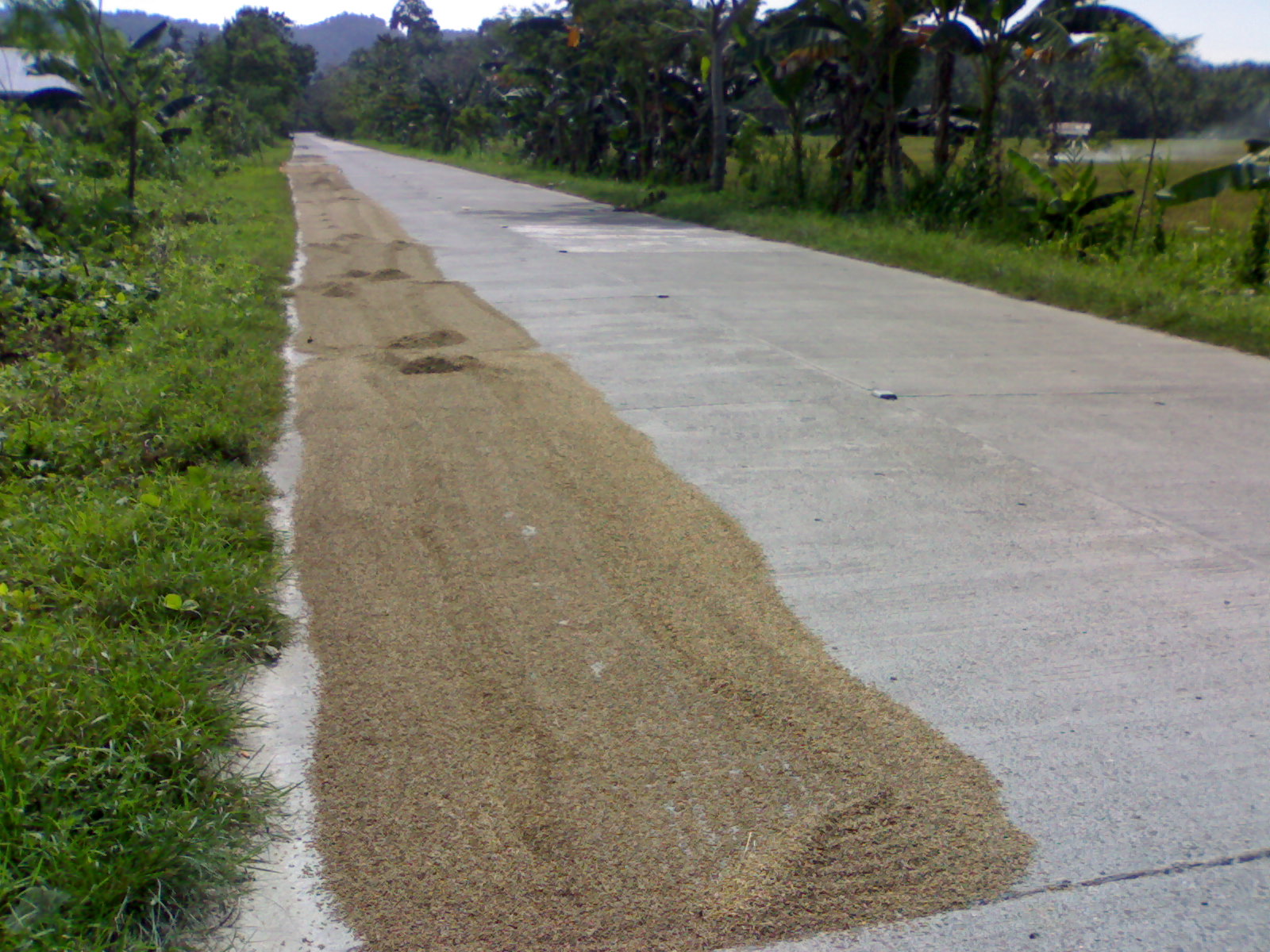 A common sight for travelers and motorists passing by through Lianga is palay or newly harvested, unpolished rice spread out to dry in the sun like yellow-green carpets covering up to one lane of the concreted portions of the national highway. It is something the locals take for granted but visitors, especially those from the city, always end up up shaking their heads and clucking their tongues in disbelief at the audacity of it.
A common sight for travelers and motorists passing by through Lianga is palay or newly harvested, unpolished rice spread out to dry in the sun like yellow-green carpets covering up to one lane of the concreted portions of the national highway. It is something the locals take for granted but visitors, especially those from the city, always end up up shaking their heads and clucking their tongues in disbelief at the audacity of it.Imagine yourself finally on the concrete highway and itching to step on the accelerator after dawdling for what felt like eternity on rough, bumpy roads. Then you come upon your side of the highway blocked by carpets of palay while traffic is zipping by on the other lane. What do you do? Do you, like the rest of us considerate mortals, wait for the traffic to clear the other lane and leave the palay alone? Or do you just curse the heavens and drive roughshod over the whole thing. It's the highway after all, isn't it?
That may be but if you do run over the palay then be sure you drive very fast so that you'll not be seen and caught by its owner. Otherwise you might end up being chased by him with a long and sharpened bolo knife in one hand and a homemade shotgun in the other.
Rice, in Filipino culture, is a valuable commodity with almost sacred and mystical properties. Running over it on the highway, even in its raw, unpolished state and despite its being improperly spread out and dried on surfaces intended solely for vehicles and pedestrian traffic, is an act with almost sacrilegious connotations. Better leave the palay alone. Who knows what bad karma or bad luck brought by the wrath of the rice gods may befall those who dare defile it.
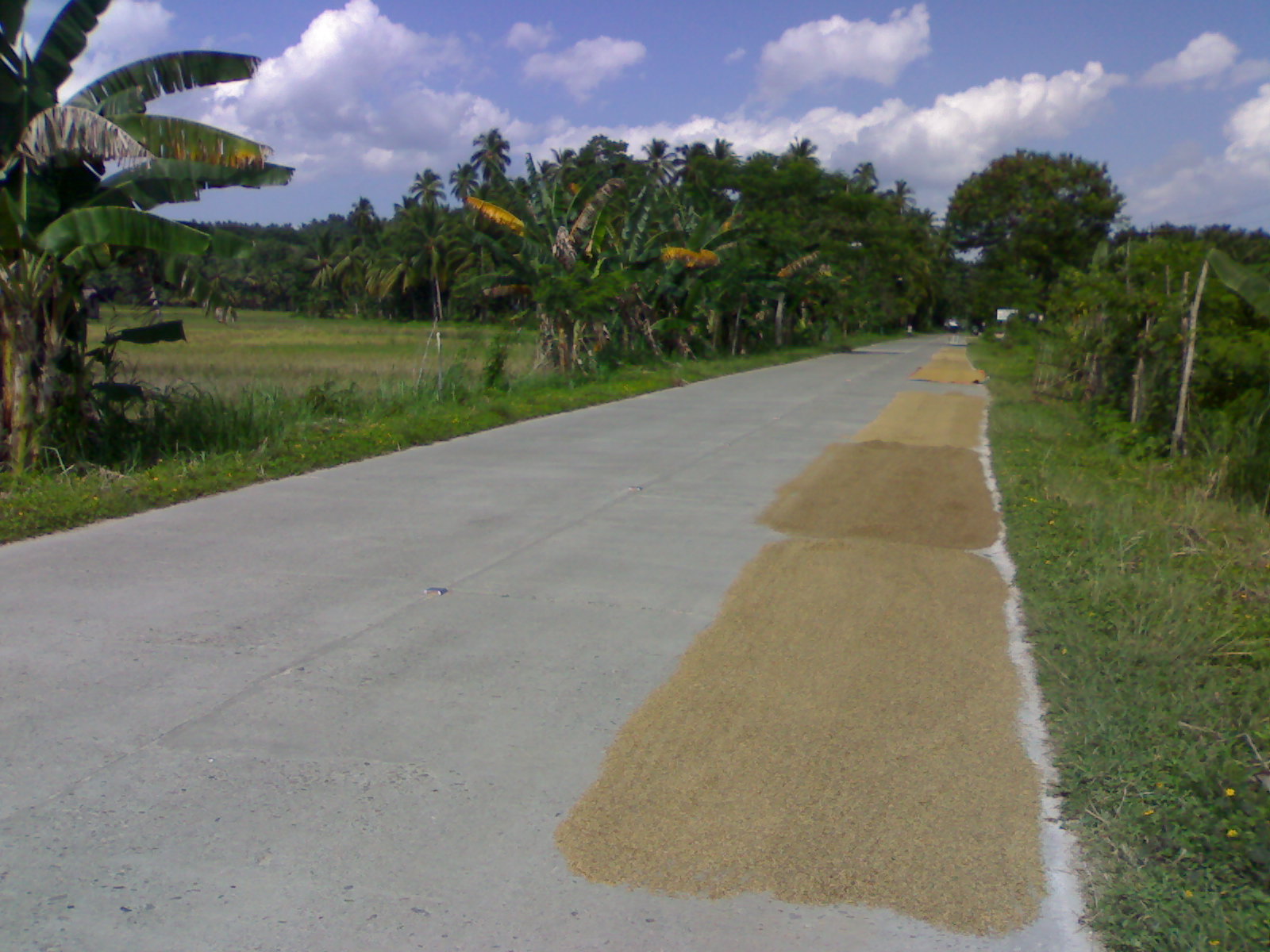 It is a frustrating, if not infuriating and exasperating, exercise in futility to try to explain to the local rice farmers and some rice traders here why they should not be drying their palay on the road surfaces of the national highway. After all, they reason out that the highways and the roads are public property and for public use. Therefore, their use of these public infrastructures for albeit a rather unusual purpose, is not improper but merely an extension of their rights as citizens to freely use or, in this case, misuse it.
It is a frustrating, if not infuriating and exasperating, exercise in futility to try to explain to the local rice farmers and some rice traders here why they should not be drying their palay on the road surfaces of the national highway. After all, they reason out that the highways and the roads are public property and for public use. Therefore, their use of these public infrastructures for albeit a rather unusual purpose, is not improper but merely an extension of their rights as citizens to freely use or, in this case, misuse it.Any attempt to argue about reciprocal rights and civic responsibility with them becomes ultimately mired in non sequiturs and irrelevancy. To stubbornly persist arguing against such rock hard obstinacy is to invite irritation if not exasperation then anger. Then it's back to speedily driving away or running very fast from either the bolo knife or the homemade shotgun. In the end, it is a better and wiser choice to just give up and leave with your dignity and body parts intact and whole.
Discretion, they say, is the better part of valor. I could not agree more.
Friday, December 7, 2007
Collateral Damage
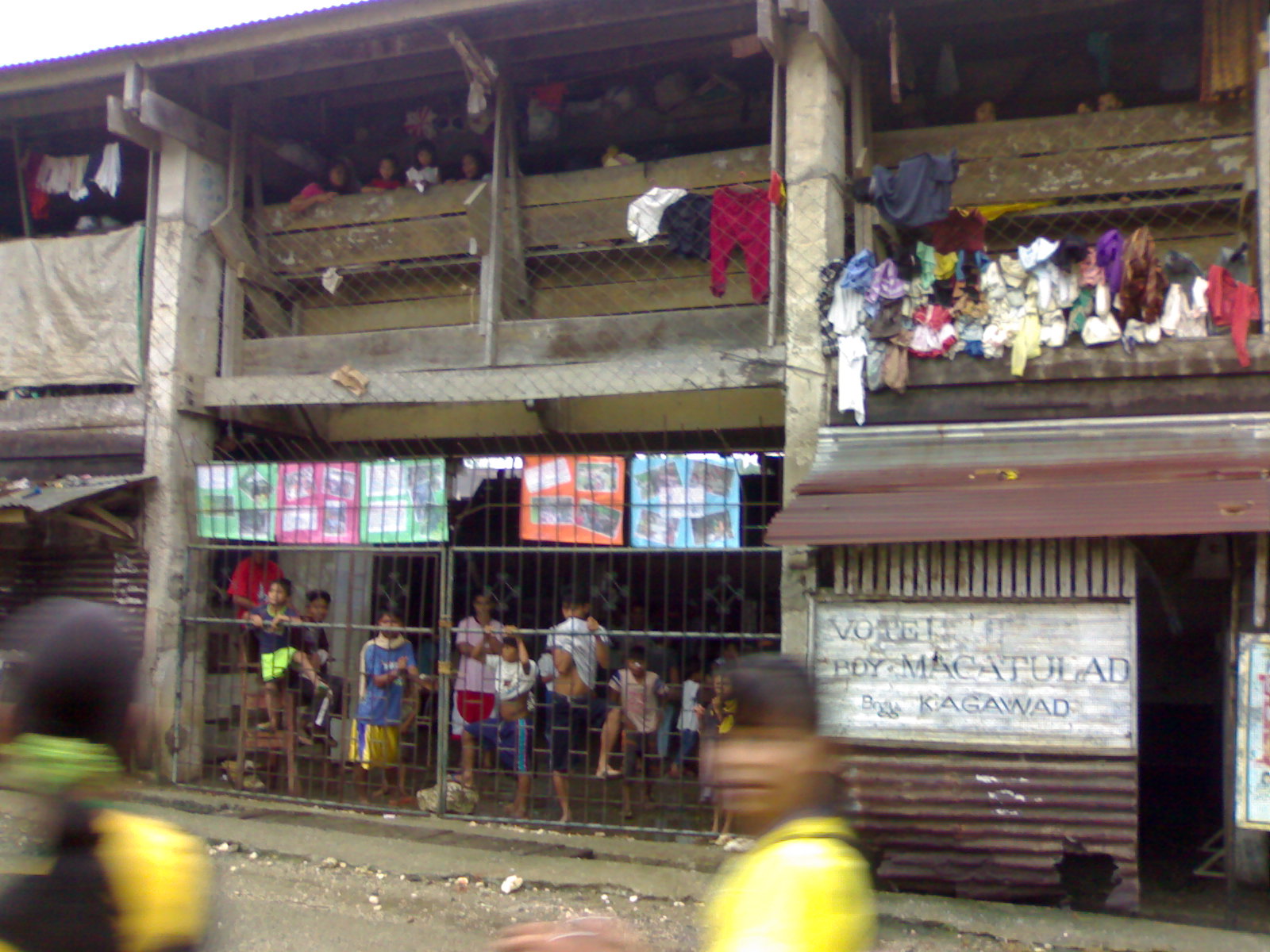 The Diatagon barangay gymnasium is a large wood and concrete structure located right smack in the middle of the barangay's commercial area and adjacent to its public market. On a typical, normal day, it is usually deserted except for bystanders watching the occasional basketball game played by youngsters playing hooky from school.
The Diatagon barangay gymnasium is a large wood and concrete structure located right smack in the middle of the barangay's commercial area and adjacent to its public market. On a typical, normal day, it is usually deserted except for bystanders watching the occasional basketball game played by youngsters playing hooky from school.Yesterday morning I was there and what I saw was a dark, stiflingly hot and crowded beehive of activity and the whole building resembled many of those abandoned and dilapidated structures one sees in city slums occupied by derelicts and the homeless. The pictures speak for themselves.
For the gym is now the temporary shelter for the at least two thousand people (some 200 families) displaced by the on-going military operations and violent clashes between government troops and New People's Army guerrillas in the hinterlands of Diatagon where many so called lumad (indigenous cultural minorities) communities and settlements exist. Two other evacuation centers are located in the barangays of Buhisan and Janipaan in the neighboring municipality of San Agustin.
Feeding and looking after the health needs of the evacuees, most of them women and children, have become the responsibility of the Philippine Red Cross, the Lianga municipal government and other aid agencies. But the longer the current situation persists, that task may become more and more difficult especially if more evacuees may be coming to seek refuge. Health officials here also fear that the lack of proper sanitation facilities and the crowded conditions at the barangay gym may lead to the outbreak and spread of communicable diseases.
On the other hand, military authorities here have taken pains to point out that the on-going offensive in the Diatagon area is a legitimate operation designed to flush out communist rebels from their local strongholds and seize control of those areas previously controlled by them. Thus, according to them, the actual targets are not the residents of the lumad communities but only NPA insurgents hiding and taking refuge within them. They have also denied charges by local human rights groups that their soldiers committed human rights abuses and have harassed and intimidated residents and forced them to evacuate their homes and seek refuge in evacuation centers.
As the charges and countercharges fly back and forth, one interesting accusation made by some tribal and lumad organizations remains unanswered. They have accused the local military of being unwittingly used by mining and logging interests close to local politicians to ensure that they obtain a monopoly on mining and logging concessions in many areas claimed by the indigenous people as part of their ancestral domains. These supposedly mineral and timber rich territories fall mostly within the areas influenced and controlled by the NPA and have been said to be major sources of revenue for the insurgents.
These tribal organizations have ask the government and military to undertake more dialogues and consultations with tribal and lumad leaders in order to settle these contentious issues and quell social unrest in the tribal communities that according to them is one reason why many residents in these communities are sympathetic to the communist insurgents who have consistently promised to fight for the rights of cultural minorities over their ancestral lands.
Whatever is the truth or truths behind the rather chaotic situation in the Diatagon area, there is a an urgent need for the government and the military not only to resolve soon the ongoing conflict there and attempt to restore some degree of normalcy to the local peace and order situation but to be more transparent and forthcoming with the rationale and the objectives of the military operations being currently undertaken. There is also a need for them to coordinate more closely with each other and the civilian populace so as to minimize the so called "collateral damage" and insure that the negative effects of such operations on affected communities are immediately addressed and mitigated.
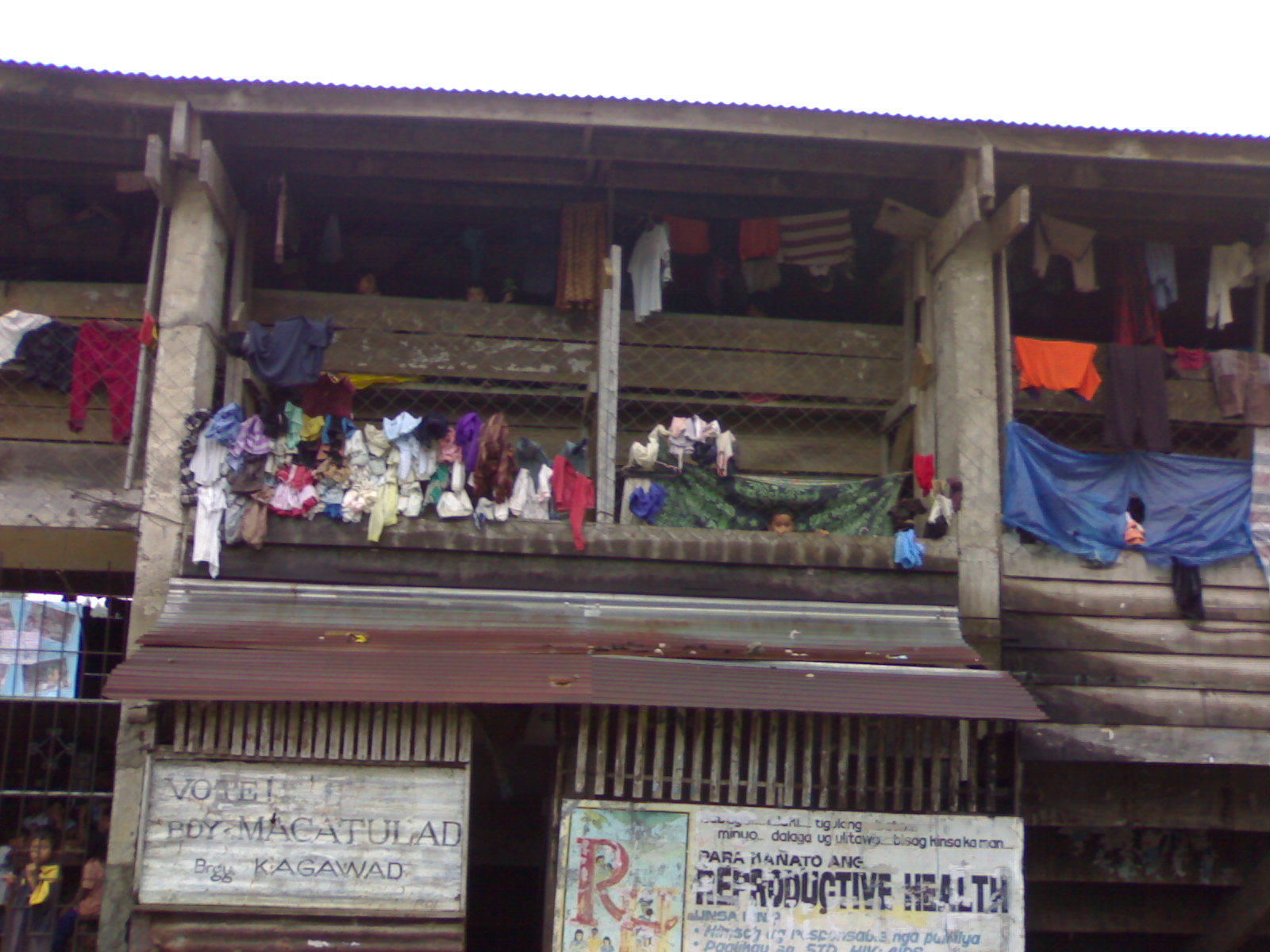 Overall success by government forces in the current Diatagon conflict involves more than tactical victories in the field or superior body count. It is always about total pacification and the "winning of the hearts and minds". And from where I sit, the military and the government may claim they are winning the battles - and with their superior numbers and better equipment they should be - but they are not certainly winning the sympathies and good will of the people they are supposed fighting for.
Overall success by government forces in the current Diatagon conflict involves more than tactical victories in the field or superior body count. It is always about total pacification and the "winning of the hearts and minds". And from where I sit, the military and the government may claim they are winning the battles - and with their superior numbers and better equipment they should be - but they are not certainly winning the sympathies and good will of the people they are supposed fighting for.It is the same old story about winning battles and yet facing the possibility of losing the war. And after decades of fighting a tenacious and resilient insurgency, and learning by bitter experience what works and what does not, it is both tragic and disastrous that, based on what is happening in Diatagon, this is the one lesson the government and the military here has not really learned or taken to heart.
Monday, December 3, 2007
Postscript to "Questions"
The on-going offensive by government troops against NPA guerrillas in the hinterlands of Diatagon must be really heating up. Since Saturday, the thumping sound of Philippine Army helicopters could be heard all over Lianga as they passed over the town at low altitude on their way to provide air support to Army troopers, that reports from Diatagon are saying, have been engaging the rebels in sporadic firefights since early Saturday morning.
The same unconfirmed reports have also indicated that government forces have airlifted to hospitals in Butuan City in Agusan del Sur an undetermined number of wounded personnel for medical treatment. The communist insurgents are also said to have incurred casualties based on the blood trails supposedly found at the encounter sites.
The current military operations in the Diatagon area are now appearing to be part of a serious push by the government to fight, contain, if not eliminate the insurgency problem in this area, a tall order if we were to review the rather checkered history of the government's counterinsurgency program in this part of the country. Yet there is astonishingly little or no real news or information about it coming from official sources or from the print, radio or television news media organizations. If this is due to a deliberate news blackout imposed by the military or the government one can never be sure.
What is sure is that the armed conflict there is causing havoc and disrupting the lives of hundreds of residents living in the affected mountain villages and communities. The hundreds of evacuees living in the Diatagon barangay gymnasium is proof of that. The military, of course, considers most of them NPA sympathizers or supporters but be that as it may, if one is poor and uneducated and forced by circumstances to live in a so called "Communist influenced or controlled" area, what else can you be?
And what about the residents of Lianga and Diatagon and all the other nearby municipalities and barangays already anxious and deeply concerned that the armed hostilities will spill over into their own communities? Not an altogether a remote possibility if we are again to base such fears and concerns on what has transpired in the not so recent past when similar military operations have been conducted in the area.
What is really the objective of this ongoing military offensive? Is it an attempt to solve the long festering problem of an armed insurgency solely by force of arms where proper education, genuine economic development and good government should be given more focus? Or are there other real reasons for the government's sudden interest in "flushing communist rebels" from their "communist rebel strongholds?"
One wonders if the real rationale for this armed conflict is more economic rather than political and if the real issue at heart is not the crushing or destruction of a protracted armed insurgency, one anchored supposedly on the precepts and doctrines of an already discredited ideology, but an attempt to wrestle control and influence over a stretch of territory fabled to be rich in mineral resources and lush with timberlands prime for commercial exploitation.
I wonder indeed.
I could, of course, be wrong. But as the casualty lists on both sides of this conflict grow longer and the number of displaced and affected civilians and noncombatants increase day by day, it becomes imperative that the people of Diatagon and Lianga start asking their government to account for the high human cost of the ongoing conflict and reveal, once and for all, for what such a high price is being paid for and why are they paying part of the price for something they don't have even any idea what.
The same unconfirmed reports have also indicated that government forces have airlifted to hospitals in Butuan City in Agusan del Sur an undetermined number of wounded personnel for medical treatment. The communist insurgents are also said to have incurred casualties based on the blood trails supposedly found at the encounter sites.
The current military operations in the Diatagon area are now appearing to be part of a serious push by the government to fight, contain, if not eliminate the insurgency problem in this area, a tall order if we were to review the rather checkered history of the government's counterinsurgency program in this part of the country. Yet there is astonishingly little or no real news or information about it coming from official sources or from the print, radio or television news media organizations. If this is due to a deliberate news blackout imposed by the military or the government one can never be sure.
What is sure is that the armed conflict there is causing havoc and disrupting the lives of hundreds of residents living in the affected mountain villages and communities. The hundreds of evacuees living in the Diatagon barangay gymnasium is proof of that. The military, of course, considers most of them NPA sympathizers or supporters but be that as it may, if one is poor and uneducated and forced by circumstances to live in a so called "Communist influenced or controlled" area, what else can you be?
And what about the residents of Lianga and Diatagon and all the other nearby municipalities and barangays already anxious and deeply concerned that the armed hostilities will spill over into their own communities? Not an altogether a remote possibility if we are again to base such fears and concerns on what has transpired in the not so recent past when similar military operations have been conducted in the area.
What is really the objective of this ongoing military offensive? Is it an attempt to solve the long festering problem of an armed insurgency solely by force of arms where proper education, genuine economic development and good government should be given more focus? Or are there other real reasons for the government's sudden interest in "flushing communist rebels" from their "communist rebel strongholds?"
One wonders if the real rationale for this armed conflict is more economic rather than political and if the real issue at heart is not the crushing or destruction of a protracted armed insurgency, one anchored supposedly on the precepts and doctrines of an already discredited ideology, but an attempt to wrestle control and influence over a stretch of territory fabled to be rich in mineral resources and lush with timberlands prime for commercial exploitation.
I wonder indeed.
I could, of course, be wrong. But as the casualty lists on both sides of this conflict grow longer and the number of displaced and affected civilians and noncombatants increase day by day, it becomes imperative that the people of Diatagon and Lianga start asking their government to account for the high human cost of the ongoing conflict and reveal, once and for all, for what such a high price is being paid for and why are they paying part of the price for something they don't have even any idea what.
Saturday, December 1, 2007
Questions
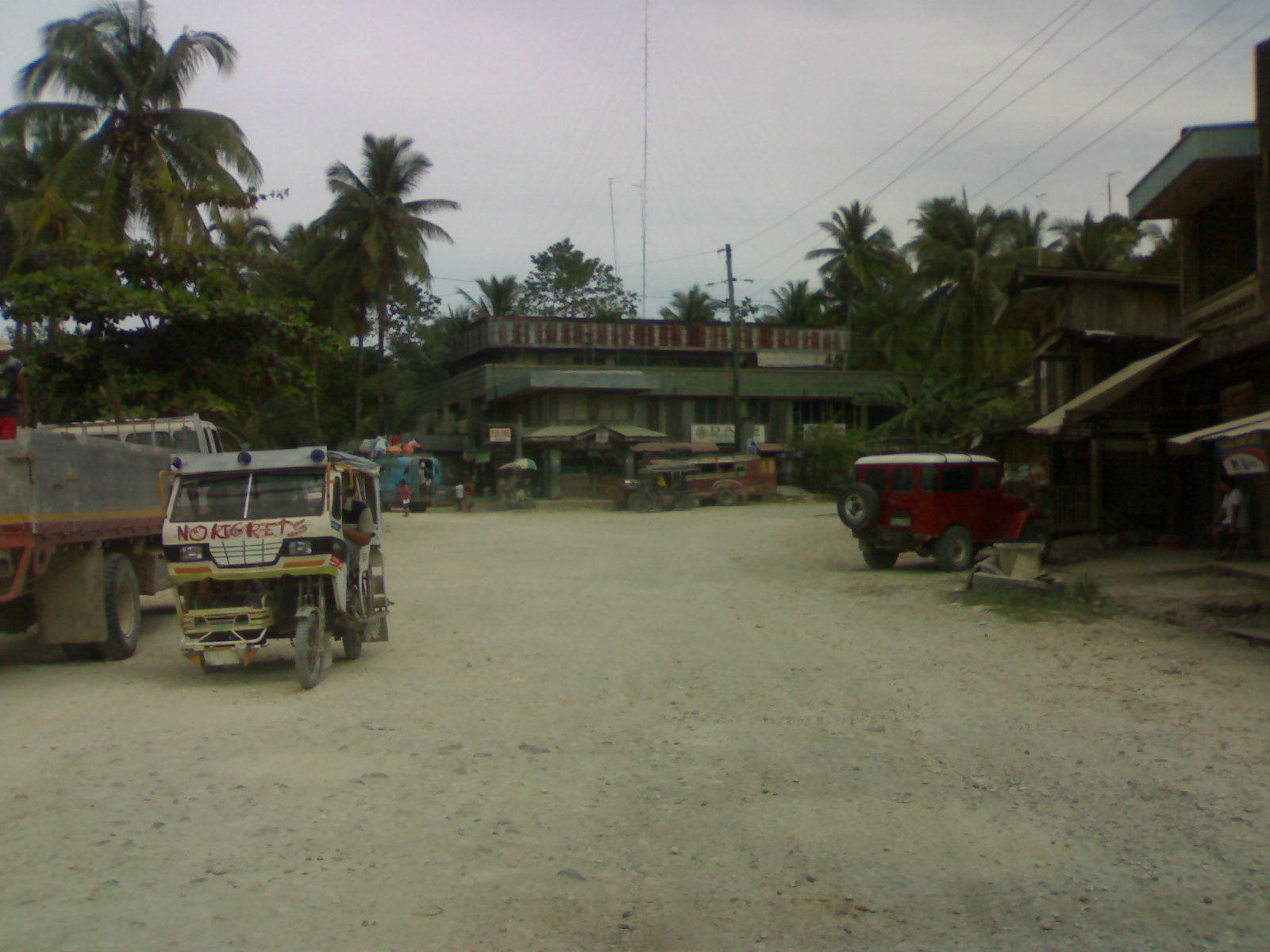 It is a sight the residents of Diatagon, a barangay or village some 9 kilometers north of Lianga, have seen many times before and will likely see again and again in the foreseeable future. Ordinary people and entire families fleeing from their homes in the nearby mountain villages and settlements and seeking shelter in the Diatagon barangay gymnasium, a public structure that has been the temporary home for hundreds of evacuees like them many times in the past.
It is a sight the residents of Diatagon, a barangay or village some 9 kilometers north of Lianga, have seen many times before and will likely see again and again in the foreseeable future. Ordinary people and entire families fleeing from their homes in the nearby mountain villages and settlements and seeking shelter in the Diatagon barangay gymnasium, a public structure that has been the temporary home for hundreds of evacuees like them many times in the past.They say they have left their homes for fear of being caught in the crossfire between government soldiers mostly belonging to the 58th Infantry Battalion of the Philippine Army conducting offensive operations in the vicinity of their villages and rebel insurgents of the New People's Army, the armed wing of the Communist Party of the Philippines.
The affected villages and settlements, most of which are tribal or lumad communities nestled amidst the timber rich mountains bordering the municipalities of Lianga, San Agustin and San Miguel, are considered "rebel controlled or influenced" by the government and the military and have been classified as such for decades now. During the 1980's, for example, the Diatagon area was the location of many violent clashes between government forces and NPA guerrillas, fierce encounters that had esulted in many casualties for both sides.
Getting verifiable reports of what is really happening in Diatagon can be difficult in Lianga where no local print, radio or television news media exists but from all indications the military operations there have been apparently going on for some weeks now. There have been reports of armed encounters between government troops and the insurgents and rumors of casualties but neither the military leadership here or the local municipal government has been keen to talk about what is really happening.
As a result of this dearth of information, rumors are rife that the on-going offensive is part of an overall plan to eventually clear this part of the province of the presence of rebel forces in preparation for the entry of economic interests keen to invest in mining and logging ventures in area. In 2005, similar clearing operations by Army troops in the nearby Andap valley also led to the mass exodus of mountain folk to evacuation centers in Diatagon. Until now, the rationale for that military action has not yet been fully explained.
What is worrisome are reports from evacuees that some military units are actually occupying villages and that a number of their troops are living with residents and sleeping at night in private homes, thus essentially using these civilians as human shields. Schools and other public buildings have been reported to be similarly co-opted. As to whether in all these cases the permission or consent of residents or their community leaders were either sought or not, one can only speculate.
Complaints of unnecessary and illegal searches of homes and persons are also being made. Also cited are cases where patently private information were allegedly improperly solicited from residents through threats and intimidation. In many instances for example, private mobile phone numbers were supposedly demanded by soldiers manning checkpoints and some residents, including children, were allegedly intimidated and threatened to provide soldiers with information about NPA activities in their area.
If this accusations and reports are all true then the local military brass has a lot of explaining to do. Their mandate to fight insurgency and enforce the law even in insurgency prone areas does not include the right to use whatever methods they think necessary, including those violating basic human rights or are in direct violation of the generally accepted rules of war and armed conflict, even in an domestic insurgency setting. This is especially essential when dealing with civilians and non-combatants even if they may be sympathetic to or are actually supporting opposing or enemy forces.
Accusations of military misconduct aside, it must also be pointed out here the municipal government of Lianga is supposed to be the one responsible for monitoring the on-going military operations in Diatagon and coordinating with the military units on the field to ensure that the personal safety and general welfare of civilians in the affected villages are not in any prejudiced or disregarded. But municipal officials, except for a few exceptions, have been strangely silent or noncommittal whenever this issue is raised.
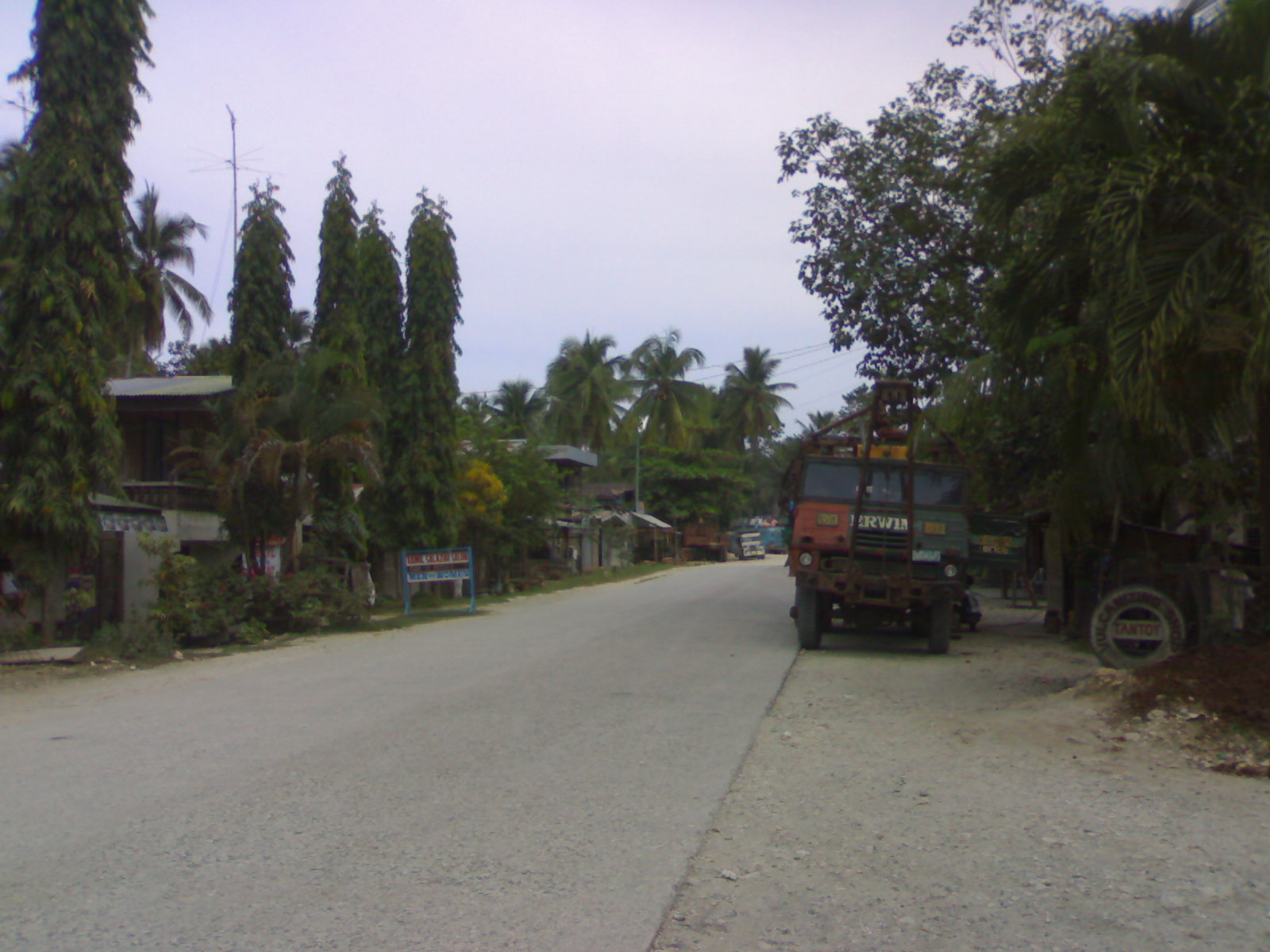 In most computer war games, a so called "fog of war" covers much of the simulated battlefield that prevents opposing players from seeing the all-over tactical situation and leaves all of them guessing the movements and intentions of their enemies. It enhances realism and makes these games more exciting and challenging.
In most computer war games, a so called "fog of war" covers much of the simulated battlefield that prevents opposing players from seeing the all-over tactical situation and leaves all of them guessing the movements and intentions of their enemies. It enhances realism and makes these games more exciting and challenging.There is a comparable fog of war that has settled in the midst of the villages and communities in the remote highlands of Diatagon. But what is happening there is no game and the local people have the right to know.
In the meantime, an atmosphere of uncertainty and fear hangs over these hamlets and settlements and that is something that the unfortunate residents there, as well as the people in Lianga and Diatagon, may have to live with for the time being and who knows for how long.
Sunday, November 25, 2007
Envy
 A friend of mine, who gave me a surprise visit yesterday morning, found me sitting in front of the television set and intently shifting channels between CNN's and BBC's coverage of the Australian general parliamentary elections. "Why watch that?", he asked, more than a bit bewildered. "Who cares who becomes prime minister down there?"
A friend of mine, who gave me a surprise visit yesterday morning, found me sitting in front of the television set and intently shifting channels between CNN's and BBC's coverage of the Australian general parliamentary elections. "Why watch that?", he asked, more than a bit bewildered. "Who cares who becomes prime minister down there?"As a Filipino and until a week or so ago, I cared little for Australia's Liberal Prime Minister John Howard and his bitter rivalry with Kevin Rudd, leader of the Australian Labor Party. The politics of the land down under usually held little interest for me except from the merely academic point of view. Who here cares really whether Mr. Howard wins another term after serving 11 years as leader of his government?
The truth is my interest in the Australian general elections stems from two simple, prosaic reasons - a fascination and.....well......pure and simply envy at the vitality, dynamism and forthrightness of the democracy that the Australian people are so lucky to be living under.
For sure, no democratic system, be it Australian, American, British or whatever and wherever, perfectly approaches the democratic ideal. Even what is supposedly democratically ideal can be the subject of strong disagreement and contention.
But any political system and framework that fully empowers its citizens to freely choose their political leaders, and thus determine the course of their nation's future, on the basis of their personal competence, ideology and perceived stand on the relevant issues and concerns of the times, and holds them personally and collectively accountable to the electorate for their stewardship of the government they have been elected to serve, deserves to be envied.
For a real democracy to work best, each individual citizen must be of the firm conviction that his view and his say on the conduct of his government, whether expressed through the ballot in regular elections or through whatever legitimate means, makes a real difference and has value both individually and collectively. His opinion ultimately does count, thus he is empowered.
 In Lianga, as in the rest of the Filipino nation, that is not exactly what the ordinary man in the street feels about his role in the politics of his town and his nation. He is weak, ignored, irrelevant and, most of the time, forgotten. Public accountability is just a slogan and elections a sham where money and power, not the people's genuine will, count the most.
In Lianga, as in the rest of the Filipino nation, that is not exactly what the ordinary man in the street feels about his role in the politics of his town and his nation. He is weak, ignored, irrelevant and, most of the time, forgotten. Public accountability is just a slogan and elections a sham where money and power, not the people's genuine will, count the most.If there is a lesson to be learned from watching the developments in the Australian general elections and the approaching presidential primaries in the U.S. 2008 presidential race, it is that great political changes in a nation occurs when such changes are backed by a groundswell of public opinion supporting such change. A people must not only see the changes they want as desirable but they must want them so bad that they will disregard their differences and work together to see them happen and become reality.
Otherwise, the alternative is the way of indifference and apathy. And when we, Filipinos in particular, no longer care or even take heed of the fragile state of the democracy we are supposed to be living under then we will surely lose it altogether and will be doomed, once again, to repeat the tragic mistakes of our recent and turbulent past.
"They say that time changes things, but you actually have to change them yourself."
Andy Warhol, American artist and Pop Art icon(1928-1987)
Thursday, November 22, 2007
Hands In The Cookie Jar
 The news report that the World Bank has recently rejected some 232 million dollars in loans intended for road improvements in the Philippines particularly in the province of Surigao del Sur came as extremely bad news for tens of thousands of people living in the Lianga area. The condition of the road sections serving the town and the surrounding municipalities have been especially bad the past weeks as a result of persistent rains and the equally persistent failure of the district office of Department of Public Works and Highways in Tandag to conduct adequate maintenance and rehabilitation work on many of the affected areas.
The news report that the World Bank has recently rejected some 232 million dollars in loans intended for road improvements in the Philippines particularly in the province of Surigao del Sur came as extremely bad news for tens of thousands of people living in the Lianga area. The condition of the road sections serving the town and the surrounding municipalities have been especially bad the past weeks as a result of persistent rains and the equally persistent failure of the district office of Department of Public Works and Highways in Tandag to conduct adequate maintenance and rehabilitation work on many of the affected areas.The World Bank board, according to the Wall Street Journal, allegedly cited bidding irregularities, procurement problems, excessive overpricing and other corruption issues and has reported asked the Philippine government to defer implementation of the road infrastructure projects pending further investigation and review of Phase 2 of the ten-year National Roads Improvement Management Program (NRIMP2) which was supposed to be funded by the above loans.
The dismal condition of Lianga's roads notwithstanding, the World Bank board's findings has merely brought out into the open a fact that many astute local observers here have been pointing out for so many years. That the reason for the delay in the upgrading and concreting of the road network servicing the municipalities of Marihatag, San Agustin and Lianga in Surigao del Sur has not been the lack of adequate funding support but the simple fact that the government's road improvement infrastructure program is so riddled with corruption and irregularities that even the World Bank cannot just sit idly by without stepping in to review, re-examine and make doubly sure that its money is going where it is supposed to be - into the building of concrete roads and bridges and not into the greedy pockets of both national and local officials as well as their cohorts in the construction industry.
Of course, the Philippine government is downplaying the significance of the World Bank board's decision and DPWH offcials are now saying that implementation of the controversial road improvement projects has not actually been canceled but have been merely "deferred" pending proper review, whatever that means. I suppose that when one has been caught with one's hand in the cookie jar, the best course of action is simply to deny the crime and say that the cookies are all still there, even if they have already telltale bite marks on them.
 As the national government goes high gear into damage control over this issue, the focus for us here in Lianga shifts to our local provincial officials in the city of Tandag. What's up guys? What went wrong? Whose to blame for all this mess? And more importantly, were there other hands and fingers in the cookie jar too?
As the national government goes high gear into damage control over this issue, the focus for us here in Lianga shifts to our local provincial officials in the city of Tandag. What's up guys? What went wrong? Whose to blame for all this mess? And more importantly, were there other hands and fingers in the cookie jar too?In the meantime, while we all wait for answers, the people in Lianga and its neighboring municipalities confront everyday the admittedly picturesque, if extremely bumpy, dusty and absolutely disgusting roads of our part of this glorious province and wonder. When will all our traveling nightmares ever end?
Or will it ever?
Sunday, November 18, 2007
Others Speak
 "Benjie, this area is indeed a paradise. There is so much potential here and yet there seems to be a pervasive feeling of despair. I hope that we can soon see some changes among the local people. I really believe that people here need some major changes to affect their lives, and to get them knowing that there is potential here to make their lives better."
"Benjie, this area is indeed a paradise. There is so much potential here and yet there seems to be a pervasive feeling of despair. I hope that we can soon see some changes among the local people. I really believe that people here need some major changes to affect their lives, and to get them knowing that there is potential here to make their lives better.""I'm hoping that people can come together and work together to make major changes to help this area become what it could be. It will mean a lot of work, but it is achievable if people will just believe. I think that your blog is one way of helping this area, we need other people to know about Lianga and the surrounding area, we need to encourage tourists to visit this area. But if we expect to have tourists, then we need to demand more and better roads, more and better accommodations in the form of resorts. "
"We need to clean up and freshen up the beaches and streets. We need more places for people to enjoy a meal, not fast food, but good Philippine cuisine. Do this and this area can grow economically, but still remain the paradise it is today. Thanks for being here."
Mark and Merejen sent this comment on the blog post "Fresh View" which I have reproduced in full and unabridged above. I felt that it spoke volumes and expressed a viewpoint that many of us who love Lianga, and who still retain emotional and sentimental links to the town, share and want so much to publicly and passionately express.
Yes, I agree there is indeed a pervasive air of despair one senses among the townspeople of Lianga. It is a hopelessness borne out of false promises and unfulfilled dreams, the inevitable response of a people who have been misled and disappointed for so long and, as a consequence, have lost faith in themselves and in their capability to dream again and work together to make those dreams real.
It is also true that there is a lot of potential for development in Lianga particularly in the area of ecotourism. But its people must not only become aware of the potential, they must really understand it and what it requires, desire it and work hard to develop it and make it bear fruit. They must take charge of their future if they want to have one.
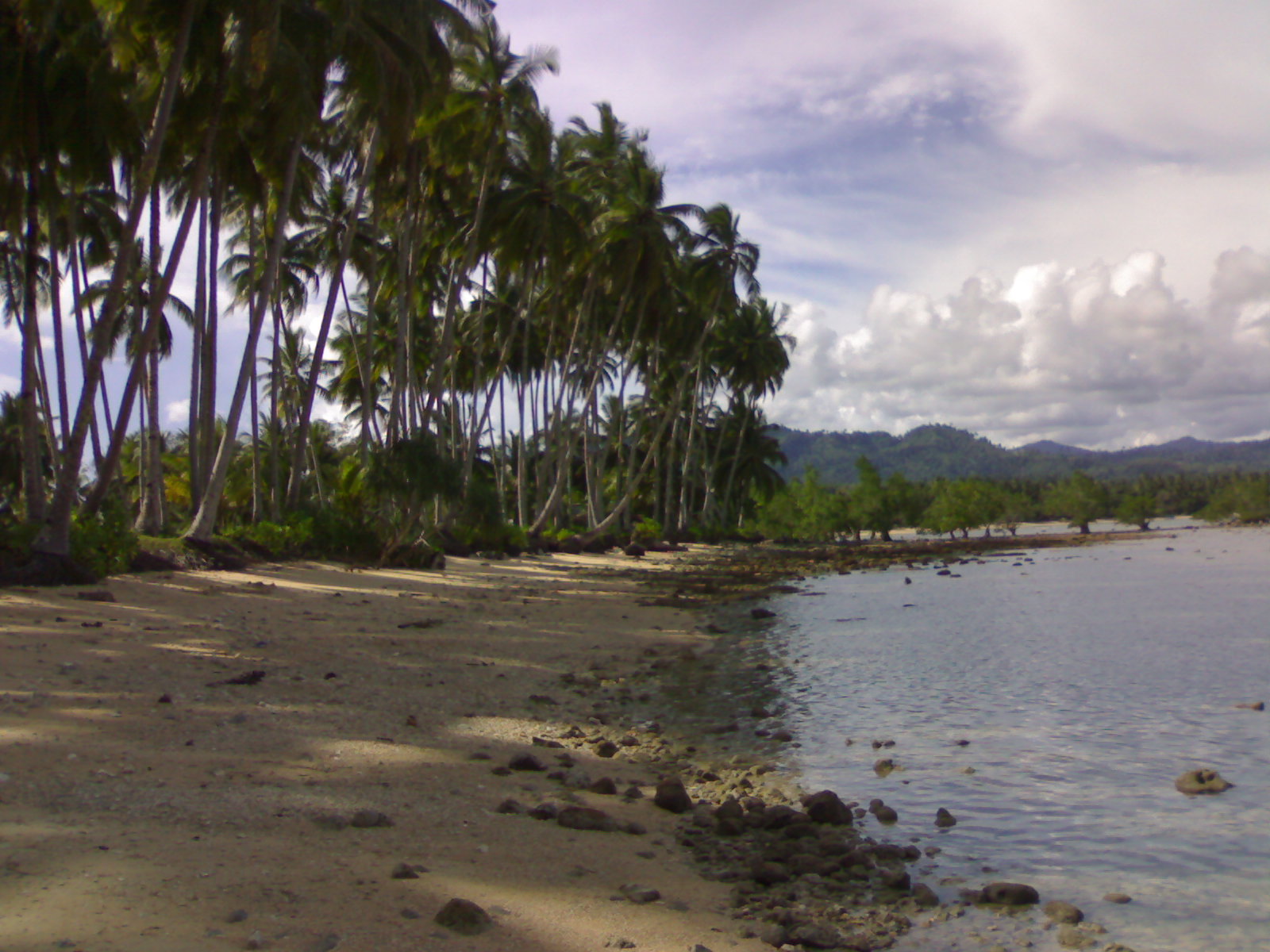 It is so easy to point fingers at the politicians for all that is wrong with Lianga and it is indeed right and proper that they should carry a large part of the blame and the shame. But it is harder for us to point our fingers at ourselves and assume responsibility for our lack of vigilance, negligence and complacency.
It is so easy to point fingers at the politicians for all that is wrong with Lianga and it is indeed right and proper that they should carry a large part of the blame and the shame. But it is harder for us to point our fingers at ourselves and assume responsibility for our lack of vigilance, negligence and complacency.For Lianga is what it is today because we, its people, have failed the town. We did not do our duty. Thus, regrettably, we are now merely paying the price and living with the consequences of our folly.
Friday, November 16, 2007
All Aboard The "Skylab"
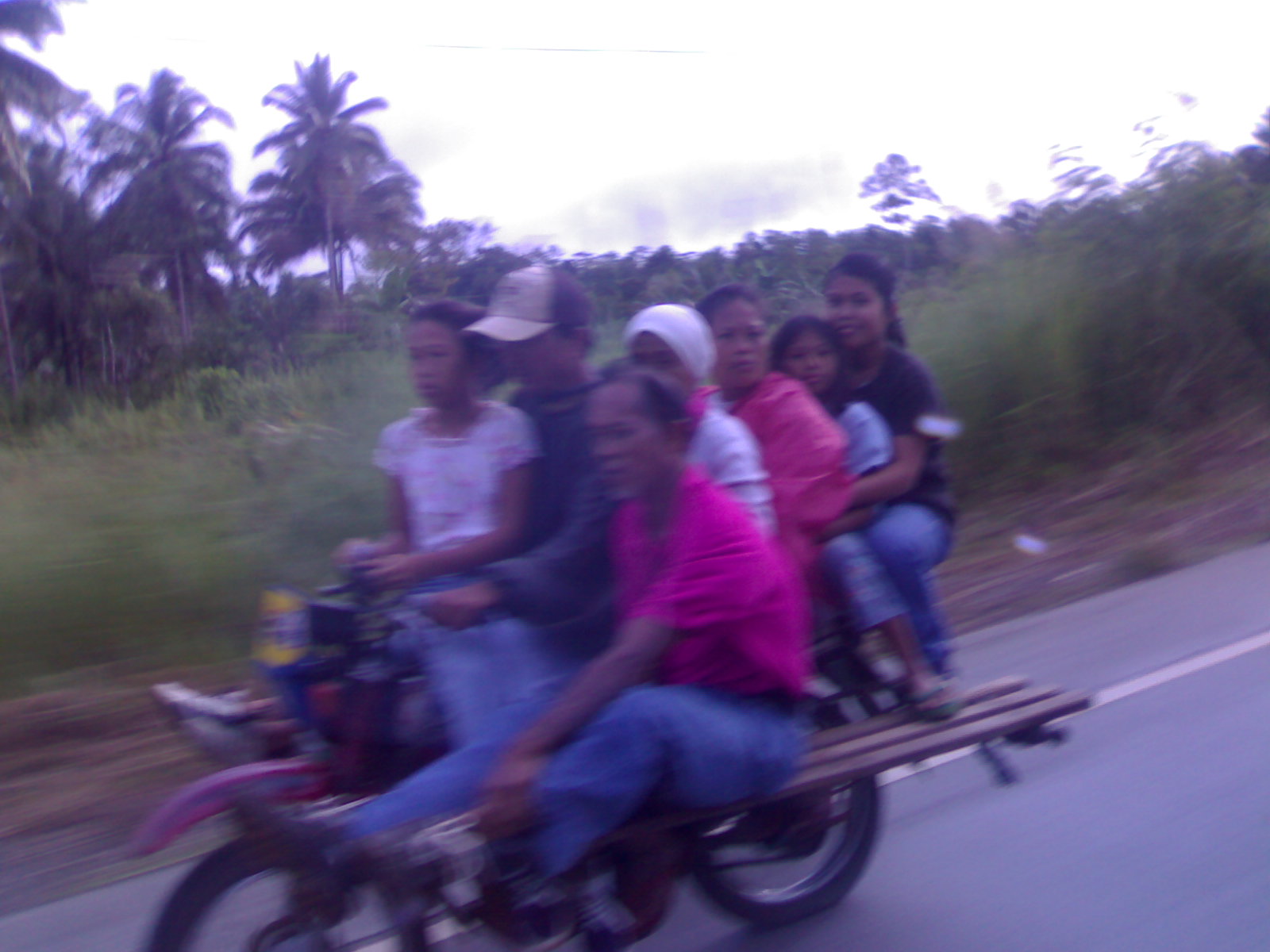 It is the kind of sight that makes foreign tourists pull out their cameras, start clicking pictures and shake their heads in amazement and disbelief.
It is the kind of sight that makes foreign tourists pull out their cameras, start clicking pictures and shake their heads in amazement and disbelief.It is a just an ordinary motorcycle, originally manufactured and designed to carry a driver and a passenger. With two wooden planks attached like a boat's outriggers on both sides of the bike chassis, you now have a public conveyance that can carry up to eight people plus the driver.
This is the famed "Skylab" motorcycle named after the legendary international space station with the jutting solar panels (considered analogous to the bike's wooden extensions) that fell back to Earth in 1979. Its reentry caused widespread near panic all over the Philippine islands which was purportedly in the path of the falling space debris. It was not.
Riding on the Skylab is an delicate balancing act, almost an art in itself and yet for many of the rural folk in the Lianga area, hitching a ride on this marvel of Filipino ingenuity, or others say foolhardiness, is a regular fact of life. It is simply the only form of public transportation readily available and, in the countryside, one takes what one can take. It's either that or a long walk to nowhere. Take your pick.
It cannot be denied that a first time ride on this marvelous contraption can be an exhilarating experience akin to a long yet thrilling rollercoaster ride. Except in this case you do without the safety harness and any form of personal protection. It is just you and your balancing skill, the driver's prowess and a lot of other random factors (pure luck included) that determine whether you reach your destination whole and unharmed or as a tangled, mangled and bloody mass of flesh and bone.
Regular riders on the Skylab express pooh-pooh the physical dangers of commuting on these modified motorcycles. They say that road safety is achieved because the passengers and the driver all cooperate and help maintain the over all balance and stability of their vehicle. In other words, it may look outright dangerous but in truth it really is not.
There may be some degree of truth in what they say. For it is a fact that road accidents involving these two wheeled contraptions have not been as frequent as one might normally expect. Why that is can be the subject of a lot of conjecture.
I wonder indeed.
I have often also wondered if there is something in the character of the rural Filipino that makes him contemptuous if not more accepting and tolerant of the risks involved in riding the Skylab. Perhaps it is his innate peasant fatalism at work.
Or perhaps it is just an acceptable way of flirting with danger, a way of silently communicating to other commuters on the road, "Hey! Here I am. Life is very hard but I don't care. I am brave and now feel truly alive! Look at me! My life is in my hands!"
Me? I am not that brave or even that fatalistic enough. I'd rather walk.
Tuesday, November 13, 2007
A Fresh View
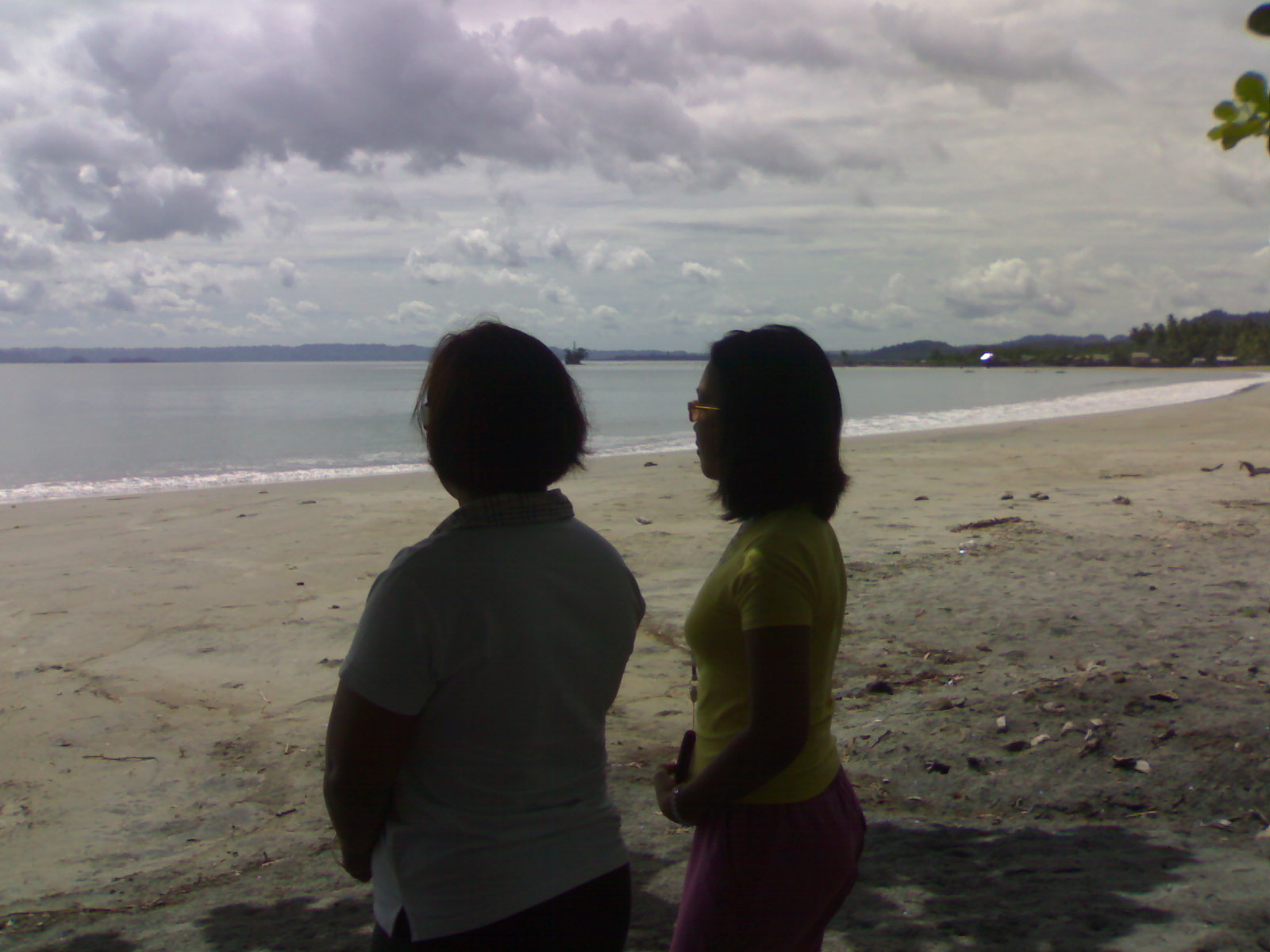 I must have walked or drove through the bumpy, dusty streets and roads of my town more than a countless times and the sights, sounds and smells of it have already become familiar to me. Perhaps that has become the problem.
I must have walked or drove through the bumpy, dusty streets and roads of my town more than a countless times and the sights, sounds and smells of it have already become familiar to me. Perhaps that has become the problem.They have in, one sense, become...well....too familiar and commonplace. Not worth a second thought or look and the sensations thus no longer savored and much less appreciated anymore. Truly, in this case, familiarity does really breed contempt if not mild disdain for what has become merely ordinary or banal.
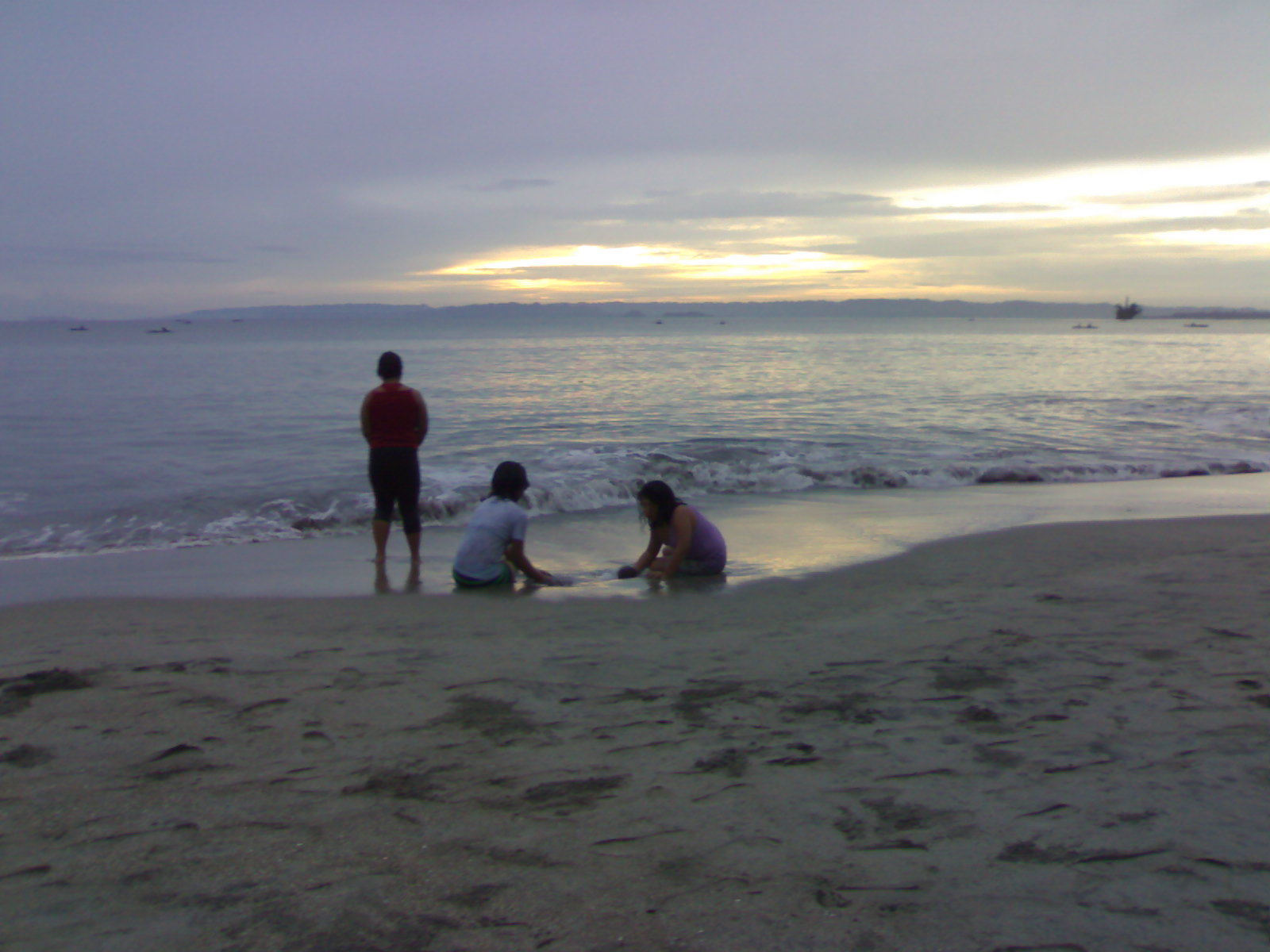 I recently had visitors from Manila and while showing them around Lianga, the enthusiasm and amazement that seemed to ooze from them as they oohed and aahed while visiting the area's sights to see and places to visit had me reflecting once again on one simple and undeniable fact.
I recently had visitors from Manila and while showing them around Lianga, the enthusiasm and amazement that seemed to ooze from them as they oohed and aahed while visiting the area's sights to see and places to visit had me reflecting once again on one simple and undeniable fact.There is a lot of nature's beauty in this place. As a coastal town, Lianga's local scenery is dominated by the wild desolation and often restless panorama of its coastal sea. The coastline is studded by white-fringed beaches, mangrove forests and rocky coves bordered by coconut trees and wild vegetation.
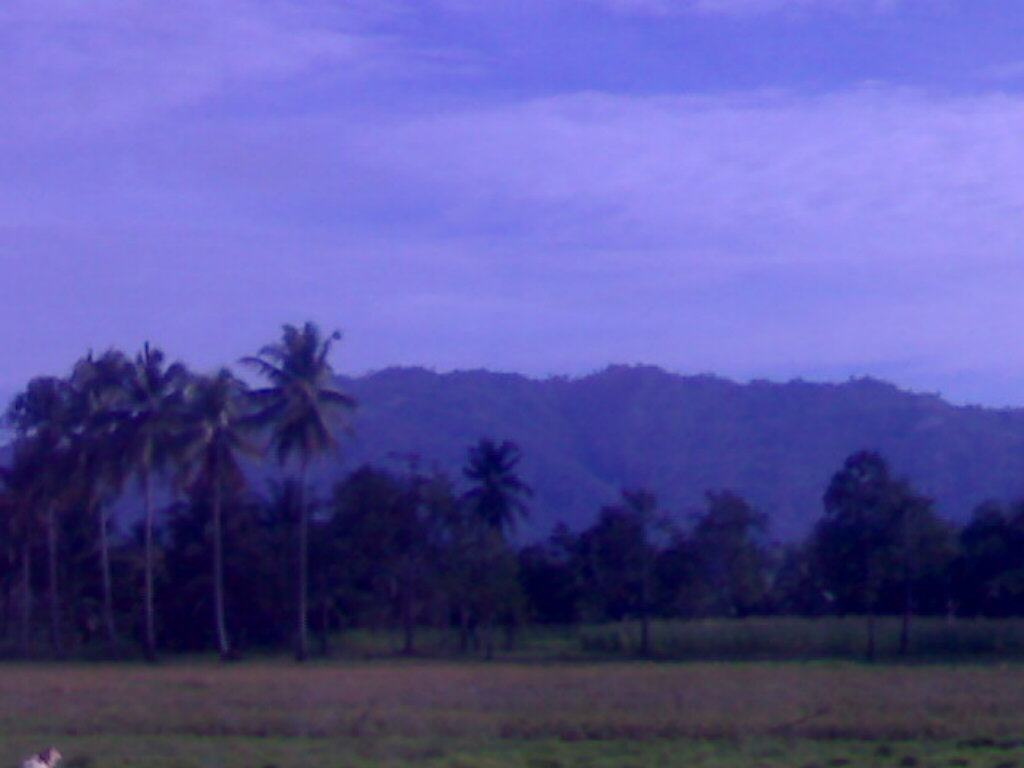 Yet opposite the sea are the remains of thickly forested mountains and hills rich in exotic flora and fauna. For the city dweller, therefore, the sight of vivid, blue-green mountains swimming in the early morning mists stretching beyond vast fields of richly green rice fields or hills carpeted with thick grass and bristling with trees are as breath-taking and awe-inspiring as the stunning view of the sunrise across the white sand and clear waters of the local beaches.
Yet opposite the sea are the remains of thickly forested mountains and hills rich in exotic flora and fauna. For the city dweller, therefore, the sight of vivid, blue-green mountains swimming in the early morning mists stretching beyond vast fields of richly green rice fields or hills carpeted with thick grass and bristling with trees are as breath-taking and awe-inspiring as the stunning view of the sunrise across the white sand and clear waters of the local beaches.These are treasures of unestimable value yet many of us here have become blind if not inured to their existence. It is often through the fresh eyes of visitors and outsiders that we become aware of all the wild yet poignant beauty that surrounds us. And it is through them, perhaps, that we regain our balance and a new appreciation for the world we are living in.
Years ago, a foreigner once told me that I was lucky to be living in paradise. I vehemently disagreed with him then. Nowadays I may still have my misgivings but when it comes to pure, natural and unspoiled scenery, I must admit that Lianga can be as close to paradise as you can get.
Saturday, November 10, 2007
Judas Money
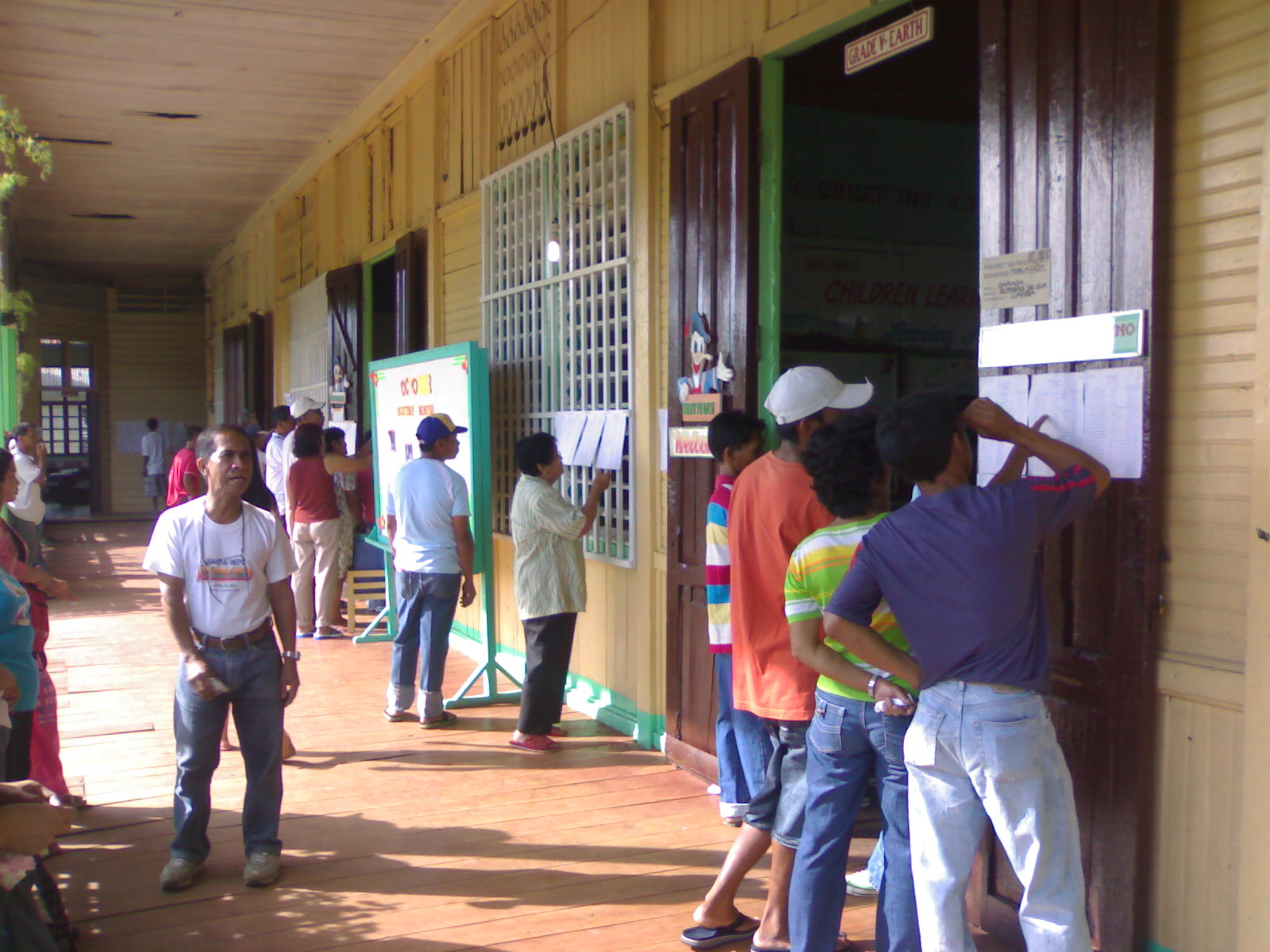 Five hundred pesos is by local standards a tidy sum of money. It may be less than ten dollars in U.S. currency but it is almost twice the legal daily minimum wage and represents a sizable chunk of the weekly food bill for the average family in Lianga.
Five hundred pesos is by local standards a tidy sum of money. It may be less than ten dollars in U.S. currency but it is almost twice the legal daily minimum wage and represents a sizable chunk of the weekly food bill for the average family in Lianga.To have at least one five hundred peso bill in your wallet or purse at any one time is, for most people here, a welcome blessing indeed and more than what many of the impoverished folk can hope for or, even if we are to believe the stories, kill or die for. Times are that hard really.
Now, to have just one or a couple of these bills freely given and placed in your hands is, by any standards, extremely good luck indeed and, for the ordinary working man, the stuff of dreams. But more than a week or so ago, during the two nights before the Oct.29 barangay elections, such a thing did happen to a lot of people in Lianga.
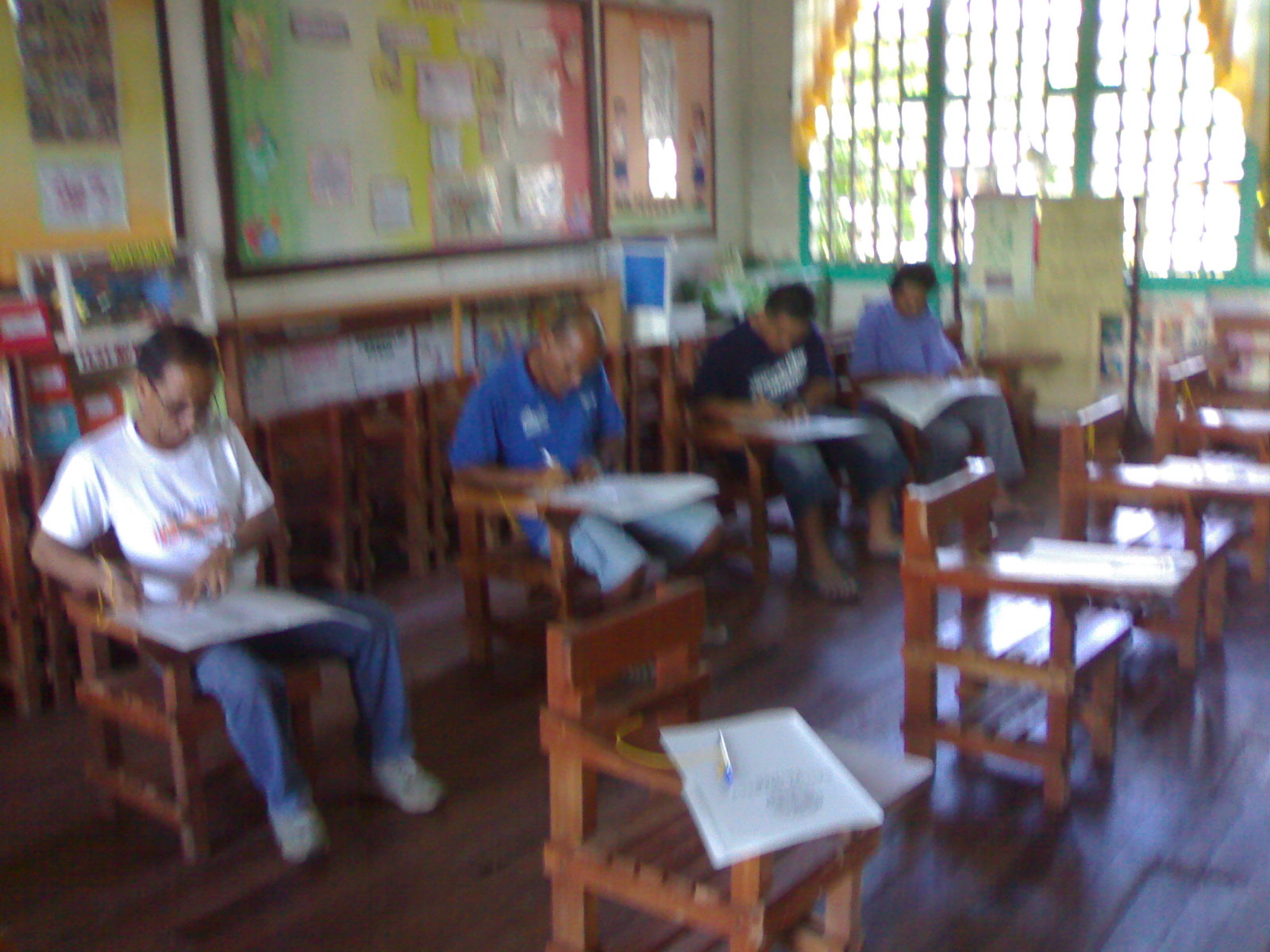 Of course, it was no red suited Santa Claus on a sled pulled by Rudolph and the other reindeers who was giving away all that money instead of the usual Christmas presents way in advance of next month's Christmas Day. And the money was not given gratis or for free either.
Of course, it was no red suited Santa Claus on a sled pulled by Rudolph and the other reindeers who was giving away all that money instead of the usual Christmas presents way in advance of next month's Christmas Day. And the money was not given gratis or for free either.What happened then was simply vote-buying done as it has been always done by politicians in Lianga in all previous elections. You do get the money in your pocket, delivered to your house and hassle free but in return you have to vote for the candidate shelling out the money. A straight forward business transaction, the money for your vote and no questions asked.
A foreigner friend of mine who witnessed the recent elections expressed shock and dismay at the audacity and the finesse with which the supposedly clandestine vote-buying operations were conducted, in many cases done often quite openly even in the light of day. Then he personally confided in me his disappointment at the ease and alacrity with which many of the Lianga townsfolk seem to tolerate and even accept this travesty of their basic democratic right of suffrage.
But then, the foreigner that he is and the fact that he is new to Lianga, he does not understand one basic thing about local politics.
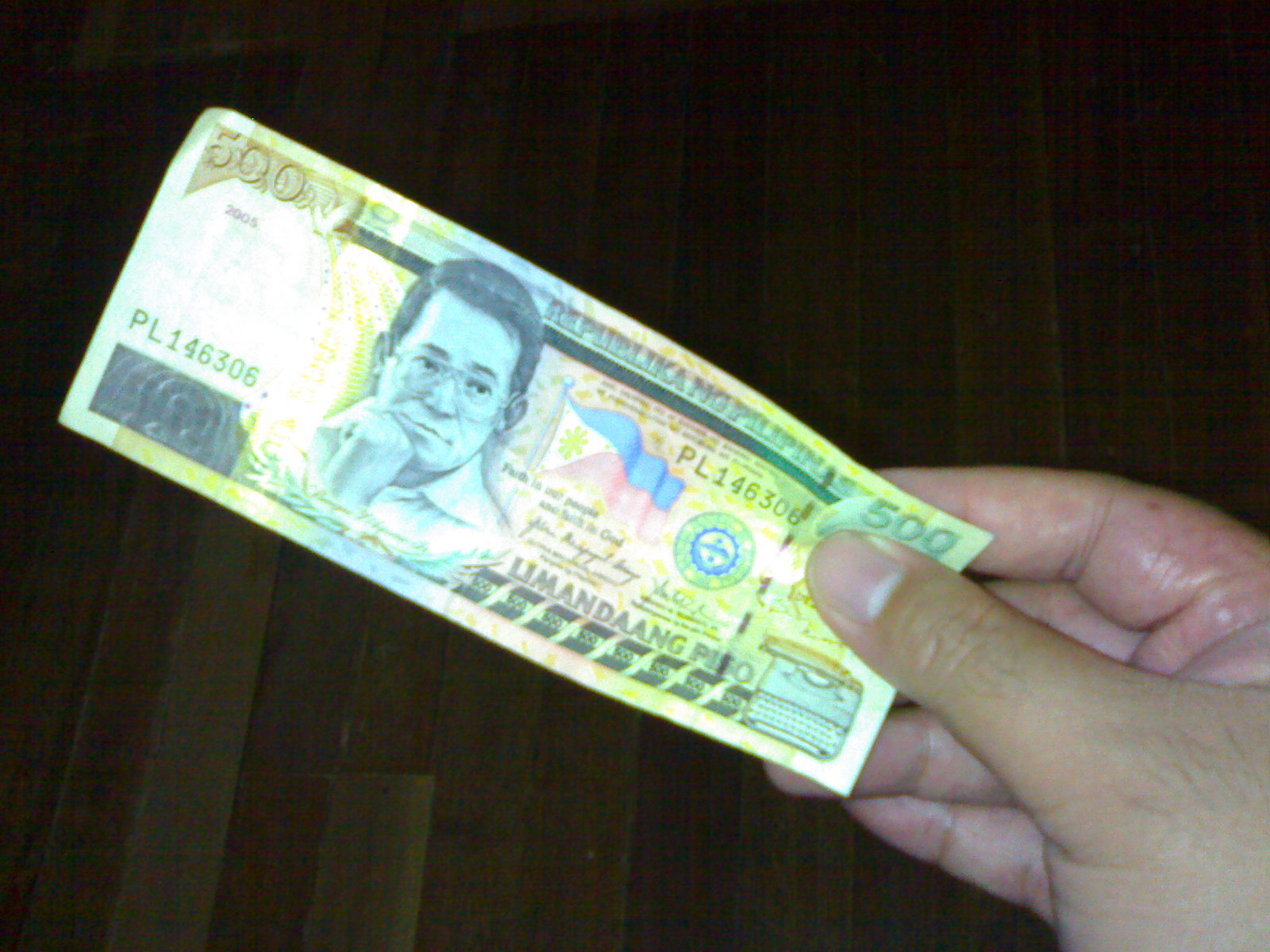 You see, if there is one "truth" the majority of the townspeople believe in, it is the fact that their individual or even collective votes rarely make a difference in the outcome of elections, whether it be local or national in nature. When there is so much perceived cheating and manipulation of electoral votes in Philippine elections and when such offenses against the most basic democratic values and principles remain unpunished and are often instead rewarded, then who among the majority of the Filipino electorate can still believe in the sanctity and value of the ballot?
You see, if there is one "truth" the majority of the townspeople believe in, it is the fact that their individual or even collective votes rarely make a difference in the outcome of elections, whether it be local or national in nature. When there is so much perceived cheating and manipulation of electoral votes in Philippine elections and when such offenses against the most basic democratic values and principles remain unpunished and are often instead rewarded, then who among the majority of the Filipino electorate can still believe in the sanctity and value of the ballot?I, however, still do. But, unfortunately for the few who do share the same opinion, it is also a truism that in a "democracy", it is always the majority and not the minority that rules and, in the final analysis, make the rules.
Saturday, November 3, 2007
For the Nth Time
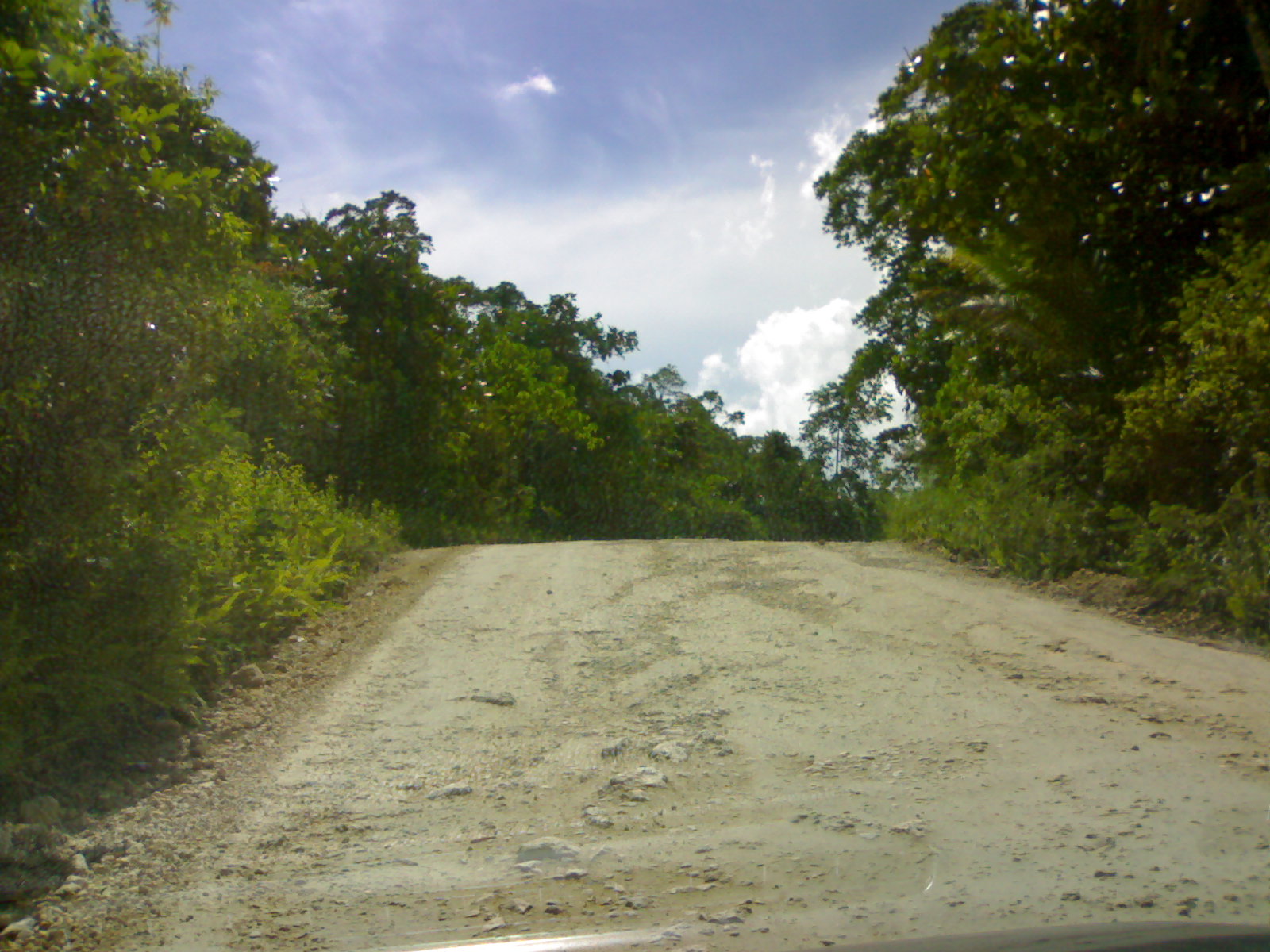 The mechanic at the auto repair shop in Butuan City was brusque yet sympathetic. Another cracked ball joint in the front suspension of the car and a multitude of angry pesos signs started dancing in my head. It's cursing time again for me.
The mechanic at the auto repair shop in Butuan City was brusque yet sympathetic. Another cracked ball joint in the front suspension of the car and a multitude of angry pesos signs started dancing in my head. It's cursing time again for me.I have come to love Lianga and living in it but there are certain times when I have the sudden urge to curse the day fate or destiny brought me to stay permanently in this coastal town by the sea. And ninety-nine percent of the time when I do that it is always when I am in the car and creeping, crawling and lurching along the rocky, potholed, and absolutely disgusting roads that crisscross this part of my province.
The question that often comes to my mind as the car rattles along is what manner of unfortunate bad luck or perennial misfortune is my town so cursed with that it has to be, for decades now, the luckless location of what may amount to be the most neglected road system in the country today. I have pondered long and hard yet have not been able to come up with a satisfying answer to this day.
There are many who say that this part of the country is so far off the beaten track that the government simply has no real or sufficient justification to improve the road infrastructure. No major industries nor any major business investments exist in the area hence the absence of the concrete paved highways that almost all of the other parts of the country have come to take for granted.
But that is just like putting the cart before the horse, isn't it? For an underdeveloped province to truly grow, the government must provide the needed requirements. Foremost among them is a modern transportation system and, at its most basic, that means a modern highway or road network linking the population and production centers to the transportation hubs and centers of the country.
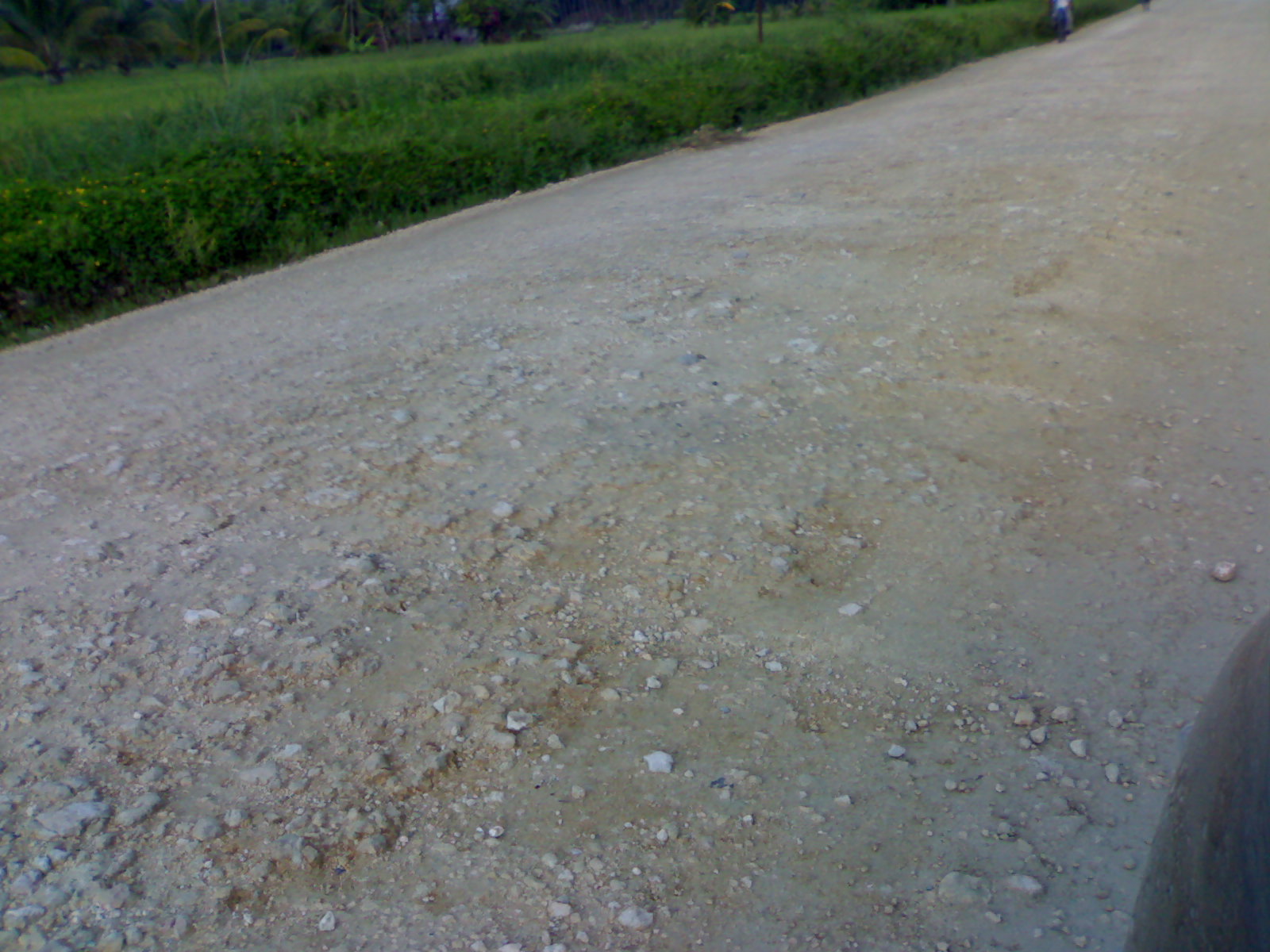 To say that politics is the primary reason for the poor condition of Lianga's roads and bridges is to hit closer to the truth of the whole matter. For what is clear and unequivocal is the fact that despite their avowed and professed concern for the people of Lianga and the economic development of the municipality, the present crop of provincial government officials including those representing the province in the national government do not give a damn about the town except for a fact that it is a pawn to be played in the political chessboard of the province.
To say that politics is the primary reason for the poor condition of Lianga's roads and bridges is to hit closer to the truth of the whole matter. For what is clear and unequivocal is the fact that despite their avowed and professed concern for the people of Lianga and the economic development of the municipality, the present crop of provincial government officials including those representing the province in the national government do not give a damn about the town except for a fact that it is a pawn to be played in the political chessboard of the province.Lianga is no longer a major town and its voting population is relatively insignificant in comparison to such major population centers as Bislig City or Tandag. But it happens to be an old town and political control over the town whether real or imagined has great sentimental if little strategic or tactical significance for the politicians of the province.
Thus the town has become a mere chess piece in the political games politicians play and it is this unstable mix of feuding political interests and the often unpredictable changes in the political alliances and loyalties that determine who has political control and influence over it that is the primary reason for the lack of a coherent development program for the area and the lack of sufficient political will to implement one if such a program happened to really exist.
Thus it is a town in perpetual political flux and nothing regarding economic, social, cultural or infrastructure development gets done. Essential and necessary programs and projects get stuck in the limbo of unfulfilled promises and proposals.
The end result is the emergence in the local people of what one can call a kind of "political fatalism", a morose view of both local and national politics as a power game rich and powerful politicians play while the local electorate and the common masses end up always the losers in the never ending battle for political and economic control of political fiefdoms.
Thus it is easier and more practical to sell your vote or political allegiance to the highest bidder since your vote, by itself, does not count much at all in the present scheme of things. "Democracy," one voter in the recent barangay elections told me, "is a scam and all politicians cheat anyway."
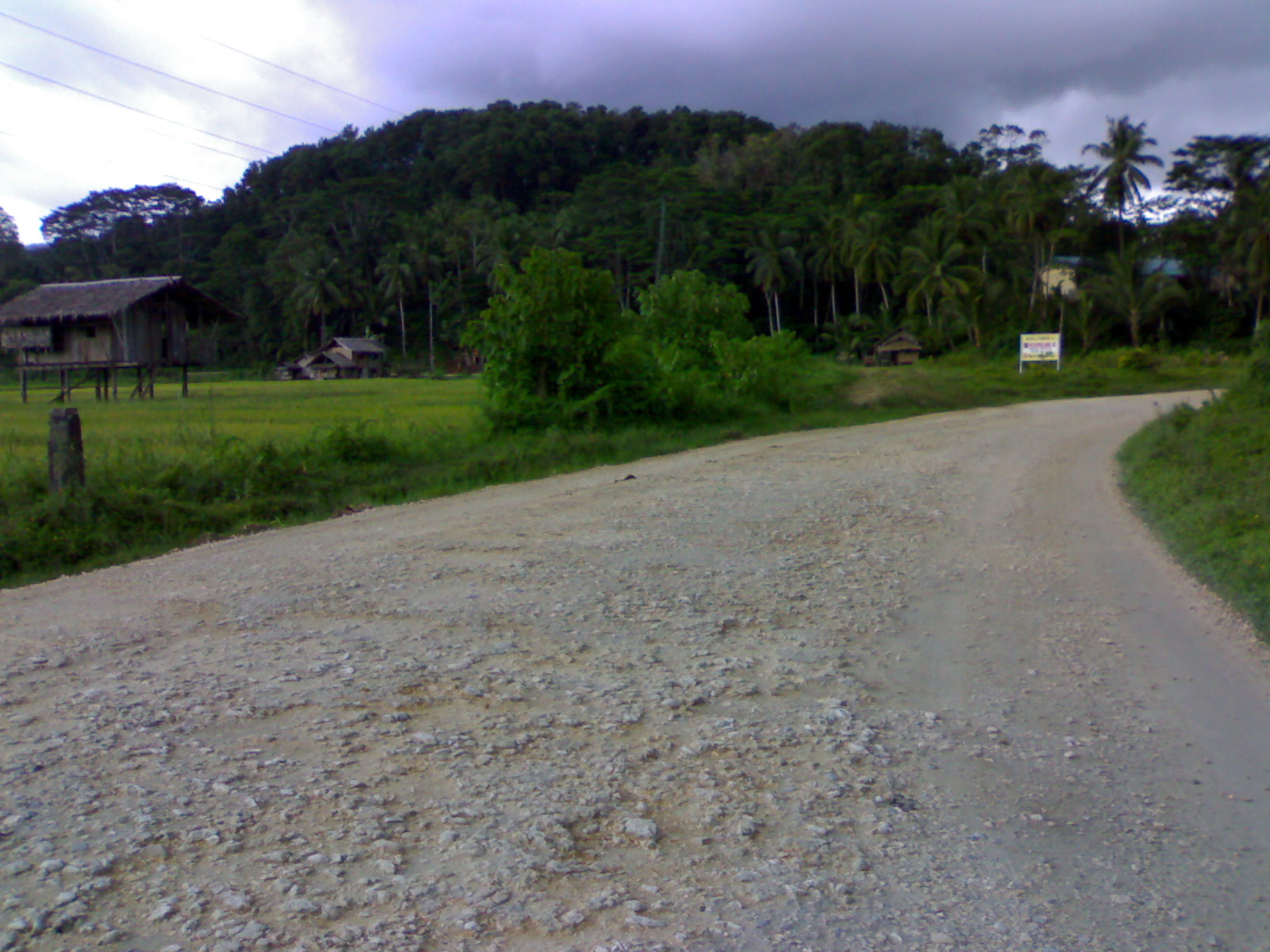 Yet, for the nth time, I still cry out to Governor BB Pimentel and Congressman Philip Pichay. Please do something about the roads in our part of the province. Get your heads and your acts together and just do something!
Yet, for the nth time, I still cry out to Governor BB Pimentel and Congressman Philip Pichay. Please do something about the roads in our part of the province. Get your heads and your acts together and just do something!The people of Lianga and its neighboring municipalities have, so far, been extraordinarily patient and forbearing with their local government officials. But the same officials cannot and must not remain complacent. There is a lot of anger and disappointment out here and those who think they can still continue to sell false promises and hot air and continue to get away with it may have to rethink what they have been doing for so long.
Otherwise if they will not, they may end up instead sowing wind and harvesting in return the bitter whirlwind of discontent and ultimately the bitter fruits of their own destruction.
Saturday, October 20, 2007
A Festival Of Sorts
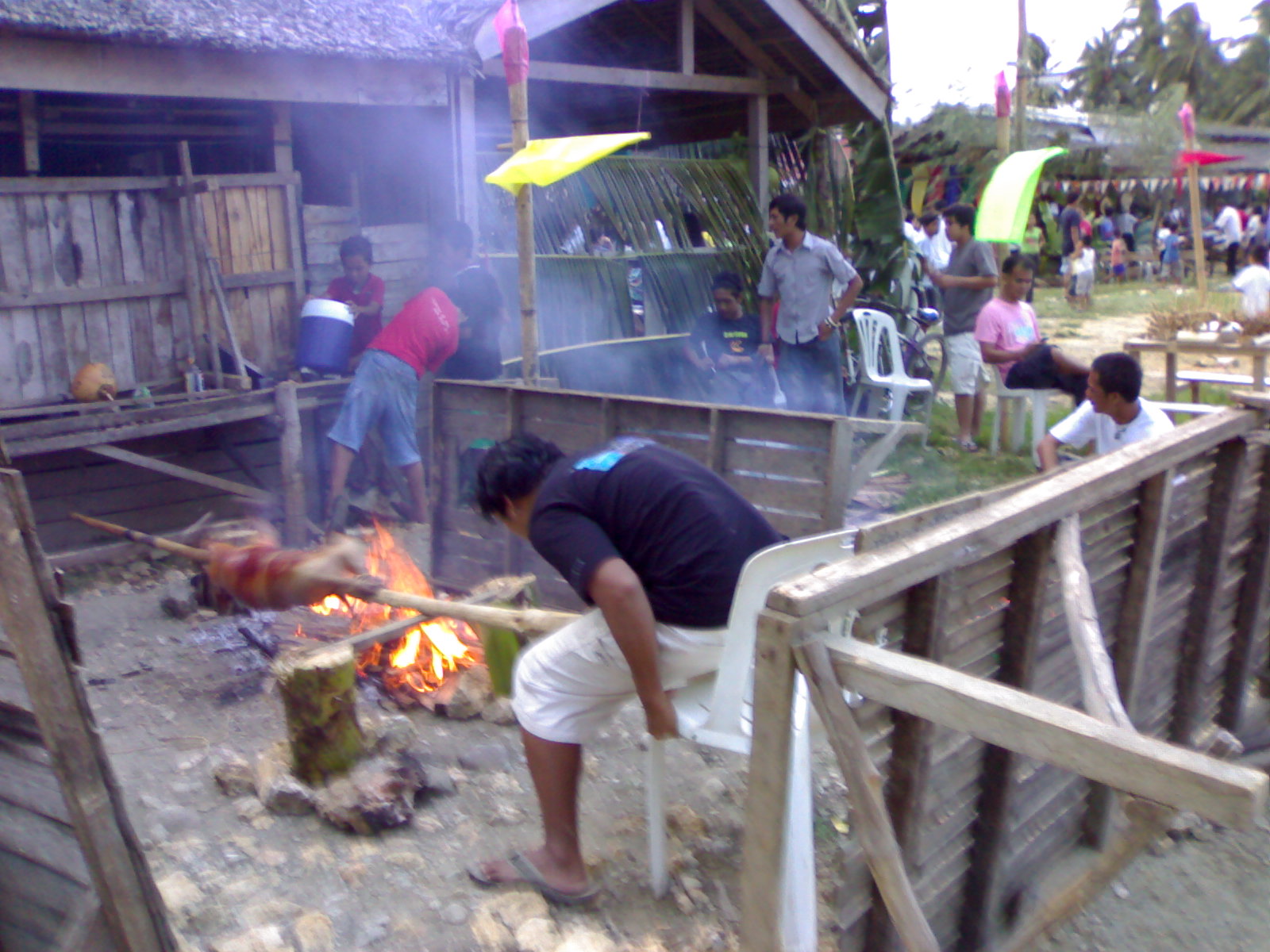 Several days ago, Lianga celebrated the 88th anniversary of its creation as a municipality which according to existing records took place on October 17, 1919. A most auspicious date to commemorate bearing in mind the supposedly extra lucky double 8 and the fact that few towns in this part of the country can boast of more than eight decades of existence.
Several days ago, Lianga celebrated the 88th anniversary of its creation as a municipality which according to existing records took place on October 17, 1919. A most auspicious date to commemorate bearing in mind the supposedly extra lucky double 8 and the fact that few towns in this part of the country can boast of more than eight decades of existence.In the brainstorming during the weeks that preceded the 17th of October, the idea of making the celebration of the foundation day more "meaningful" and "significant", by making it into a festival commemorating some special aspect of life related to or indigenous to the town gained support among the local leadership. Thus the concept of the first Pinipig Festival was born.
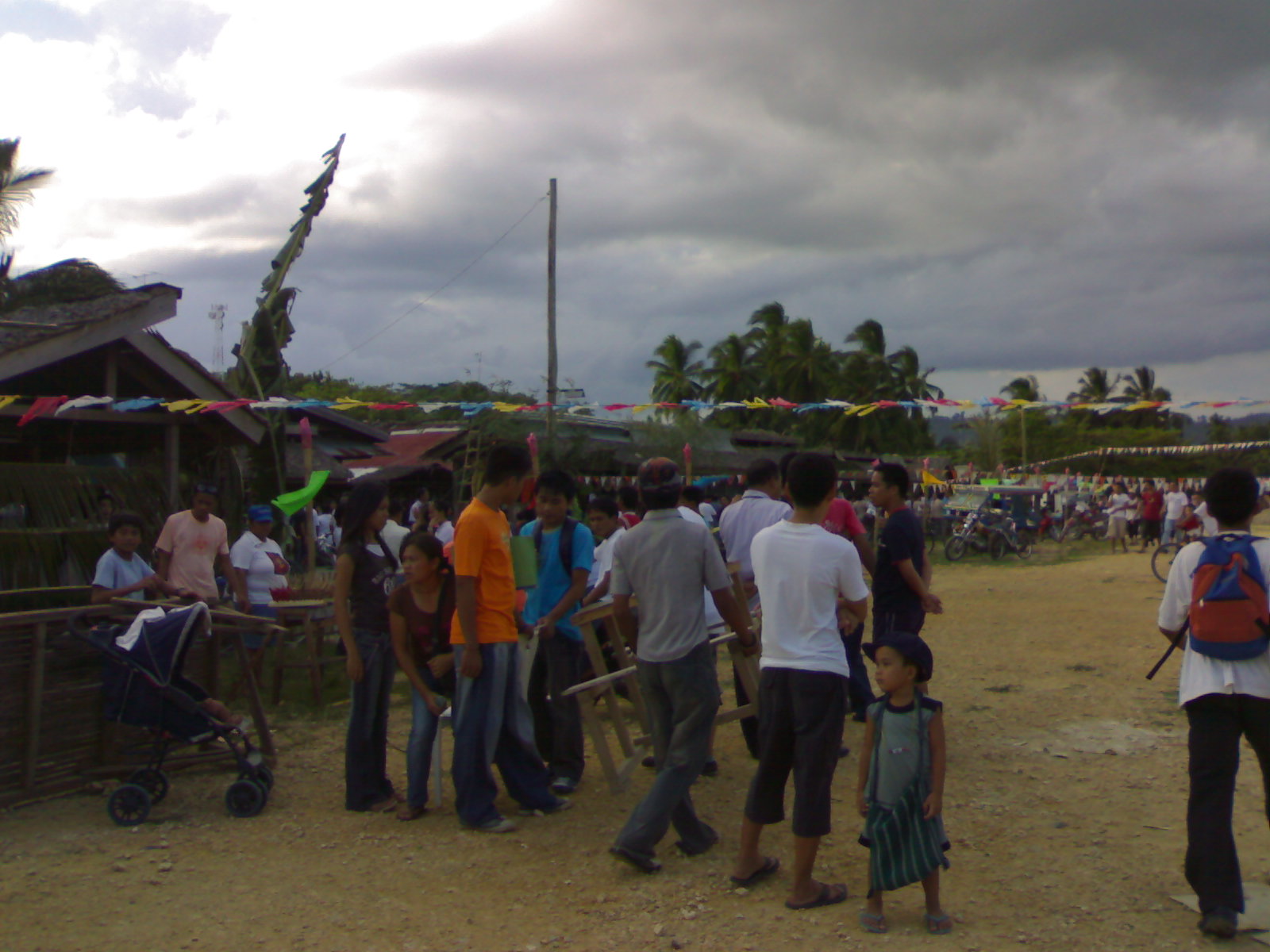 For the uninitiated, pinipig is newly harvested, immature, glutenous rice that is lightly toasted and pounded into flattened flakes that can be eaten as is or used as a main ingredient for many Filipino desserts and drinks.
For the uninitiated, pinipig is newly harvested, immature, glutenous rice that is lightly toasted and pounded into flattened flakes that can be eaten as is or used as a main ingredient for many Filipino desserts and drinks.I, like so many other Lianga residents, was a bit nonplussed at the choice of this delicacy as the star of a festival. Lianga is indeed an agricultural town and rice is one of its cash crops albeit it is known more for its lumber, copra and fishing industry. Pinipig is certainly not on top of anyone's list of agricultural products particularly associated with the place.
But in this age where festivals of all sorts are the rage then who am I to object to what obviously is an eager beaver attempt to promote an image of Lianga as a fun town with a cultural heritage and a place to visit for both local and foreign tourists. Pour enough effort, imagination and money into such an undertaking and some success is bound to be achieved.
But true festivals and celebrations, whether religious or secular, especially those which have endured through time, are often those deeply rooted in the historical and cultural sensibilities of a people. They are seldom artificially created but even if they were indeed created, they still spontaneously emerge and draw sustenance, purpose and energy from the popular consciousness and will. The Pinipig Festival is, most certainly, not one of them.
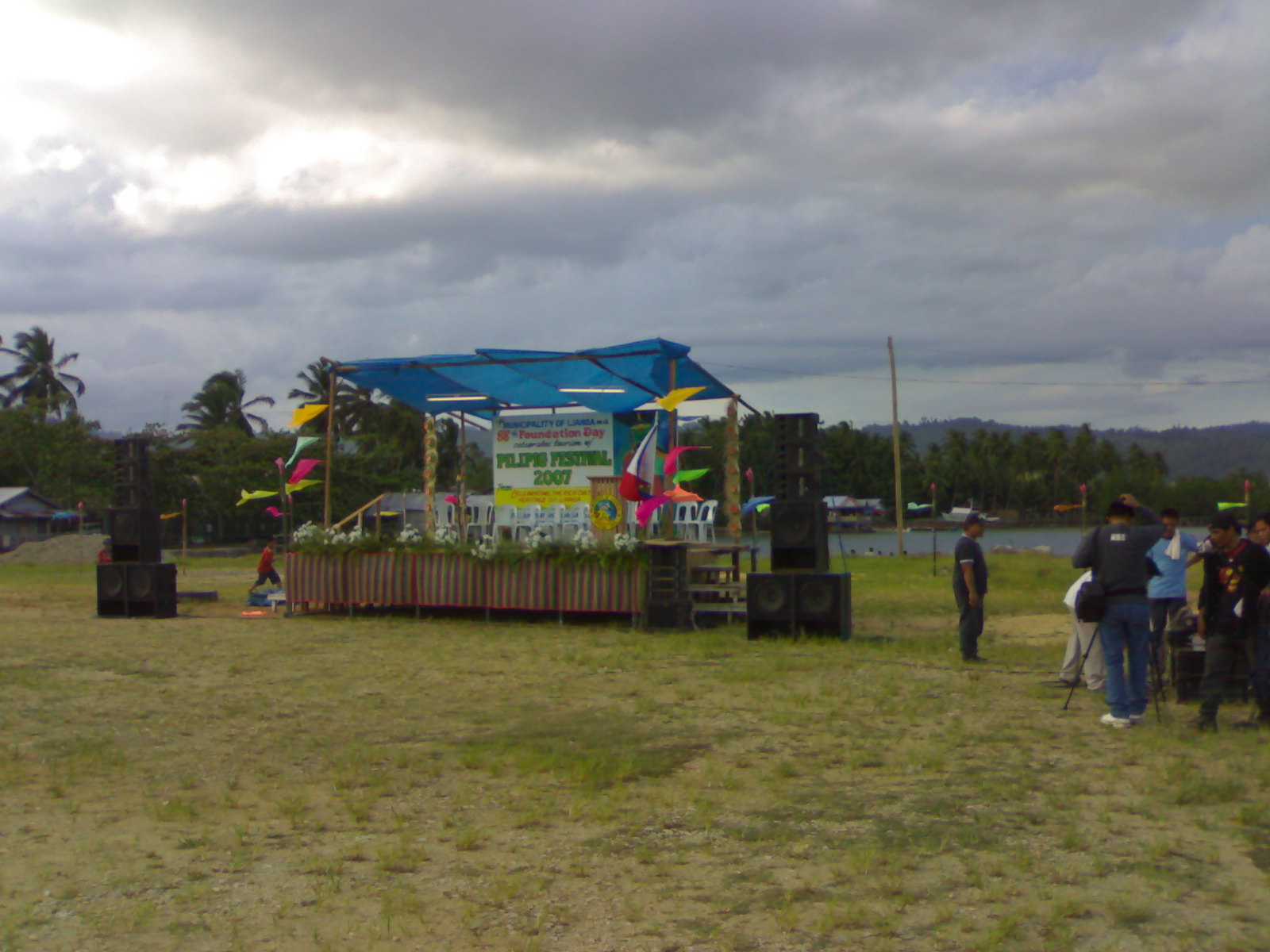 The festival was a nice try by the local government but, as a concept, was flawed from the moment it was conceived. A fitting and appropriate program of activities commemorating such an auspicious occasion as more than eighty years of being a town requires one that has more real substance rather than mere show, glitter and bombast. More meaning and relevance rather than the elaborate trimmings and loud noise of mere spectacle.
The festival was a nice try by the local government but, as a concept, was flawed from the moment it was conceived. A fitting and appropriate program of activities commemorating such an auspicious occasion as more than eighty years of being a town requires one that has more real substance rather than mere show, glitter and bombast. More meaning and relevance rather than the elaborate trimmings and loud noise of mere spectacle.By the way, I do like pinipig and during my childhood days did help make it in Lianga once or twice. It was fun and magical doing it especially during the night and in the light of the rising moon and together with relatives and friends.
I was there during the Pinipig Festival several days ago. To my sorrow, there was little of the fun and magic I was looking for. Neither was there much relevance or substance. But then the heart of the town and its people were never in this celebration and it was foolish to expect more than what was there.
Nice try though and let's hope we do it better next year.
Friday, October 19, 2007
Note of Thanks
An acquaintance of mine tapped me on the shoulder yesterday and told me to check out a website ( http://www.diatagon.com). He said the site administrator there had written something about this blog there.
In my occasional forays into the maze of the Web, I did come across links to that website but never had the opportunity to go there. An oversight that I now deeply regret.
I did finally browse the site last night and read Jun Abines's comments about A Lianga Diary and I am deeply grateful for all the kinds words he had for this blog. It warms my heart to know that there are people out there in the world who like me, share a passion for all things about Lianga and this small corner of the world and who are using the power of the internet to write about it and communicate such passion to others.
Diatagon is the name of Lianga's biggest and most populous barangay or component village. That someone has put up a website in its name is noteworthy since there are a precious few such sites dedicated to making sure that people from this part of Mindanao or have sentimental links to it can keep in touch with what is happening there no matter where they are in the world. In more ways than one, it is a labor of love and a praiseworthy one at that.
I wish the website and the people behind it well and I am proud to be with you.
In my occasional forays into the maze of the Web, I did come across links to that website but never had the opportunity to go there. An oversight that I now deeply regret.
I did finally browse the site last night and read Jun Abines's comments about A Lianga Diary and I am deeply grateful for all the kinds words he had for this blog. It warms my heart to know that there are people out there in the world who like me, share a passion for all things about Lianga and this small corner of the world and who are using the power of the internet to write about it and communicate such passion to others.
Diatagon is the name of Lianga's biggest and most populous barangay or component village. That someone has put up a website in its name is noteworthy since there are a precious few such sites dedicated to making sure that people from this part of Mindanao or have sentimental links to it can keep in touch with what is happening there no matter where they are in the world. In more ways than one, it is a labor of love and a praiseworthy one at that.
I wish the website and the people behind it well and I am proud to be with you.
Thursday, October 18, 2007
Pugad
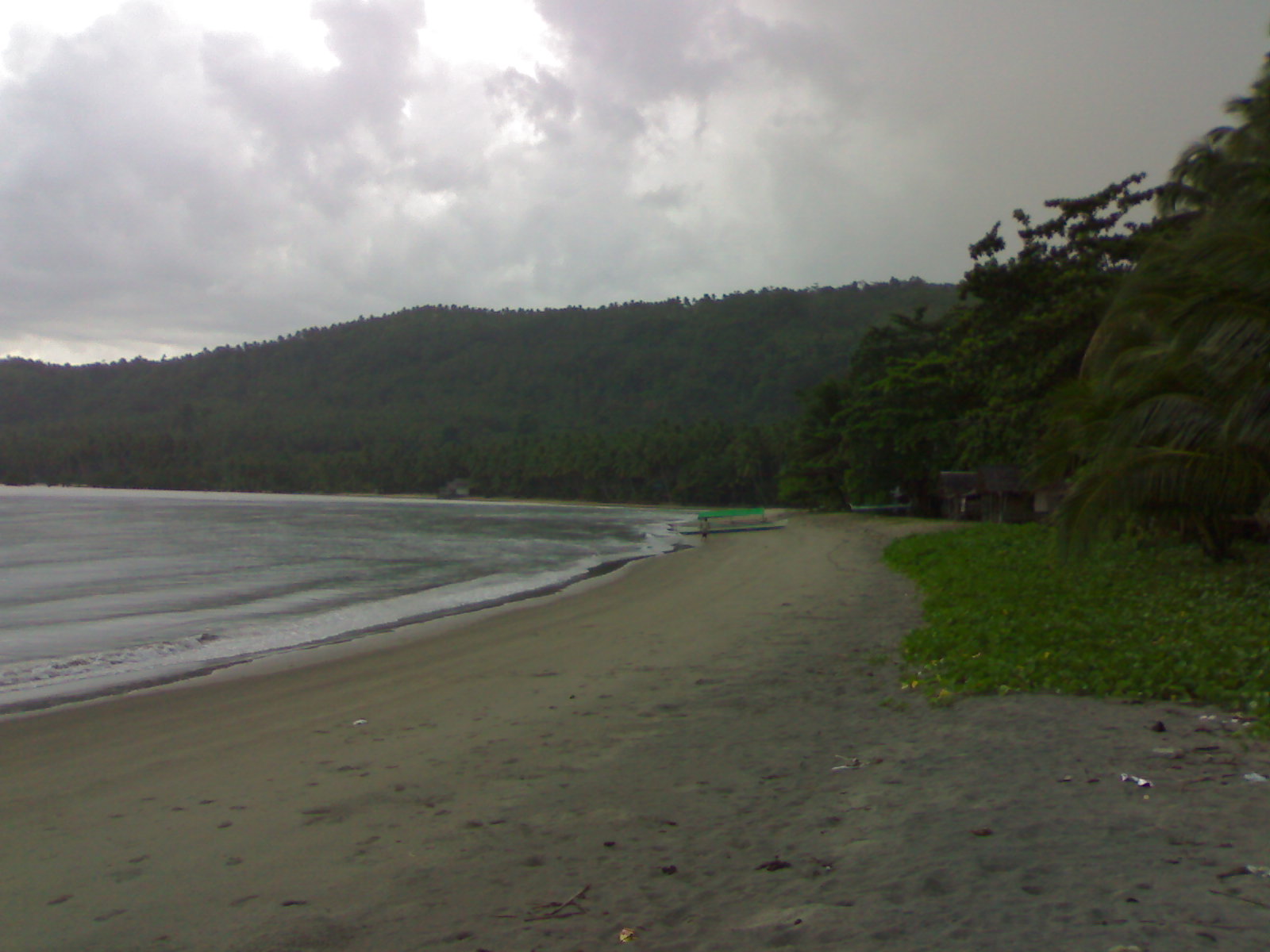 The term "pugad" is one of those rare words that mean the same thing in both the Bisaya and Tagalog languages. It actually refers to a nest, particularly those marvelous creations of grass, leaves and fiber ingenuously made by birds to shelter their eggs and eventually their young offspring.
The term "pugad" is one of those rare words that mean the same thing in both the Bisaya and Tagalog languages. It actually refers to a nest, particularly those marvelous creations of grass, leaves and fiber ingenuously made by birds to shelter their eggs and eventually their young offspring.In Lianga, just mention the name Pugad and it points to a small village or hamlet situated just over a kilometer to the west of the town and which also happens to be the location of a long stretch of white sand beach fronting the coastal sea that is a popular destination for weekenders from all over the surrounding towns and cities.
When I was just a young lad in the 1970's and early 1980's, Pugad was one of those special, hidden and isolated places one can only go to after a hard trek through a small trail through coconut trees and wild vegetation. There was already a rudimentary dirt road servicing that small coastal community but most of the choice areas in the wide expanse of beach could be more easily reached by foot.
My memories of those times were of dazzlingly white sand and crystal clear, blue-green waters peeping through the trunks of ancient coconut trees. And the seemingly endless curve of of the wide expanse of the sand that swerved like a long, elongated J into the what seemed like the far distant horizon.
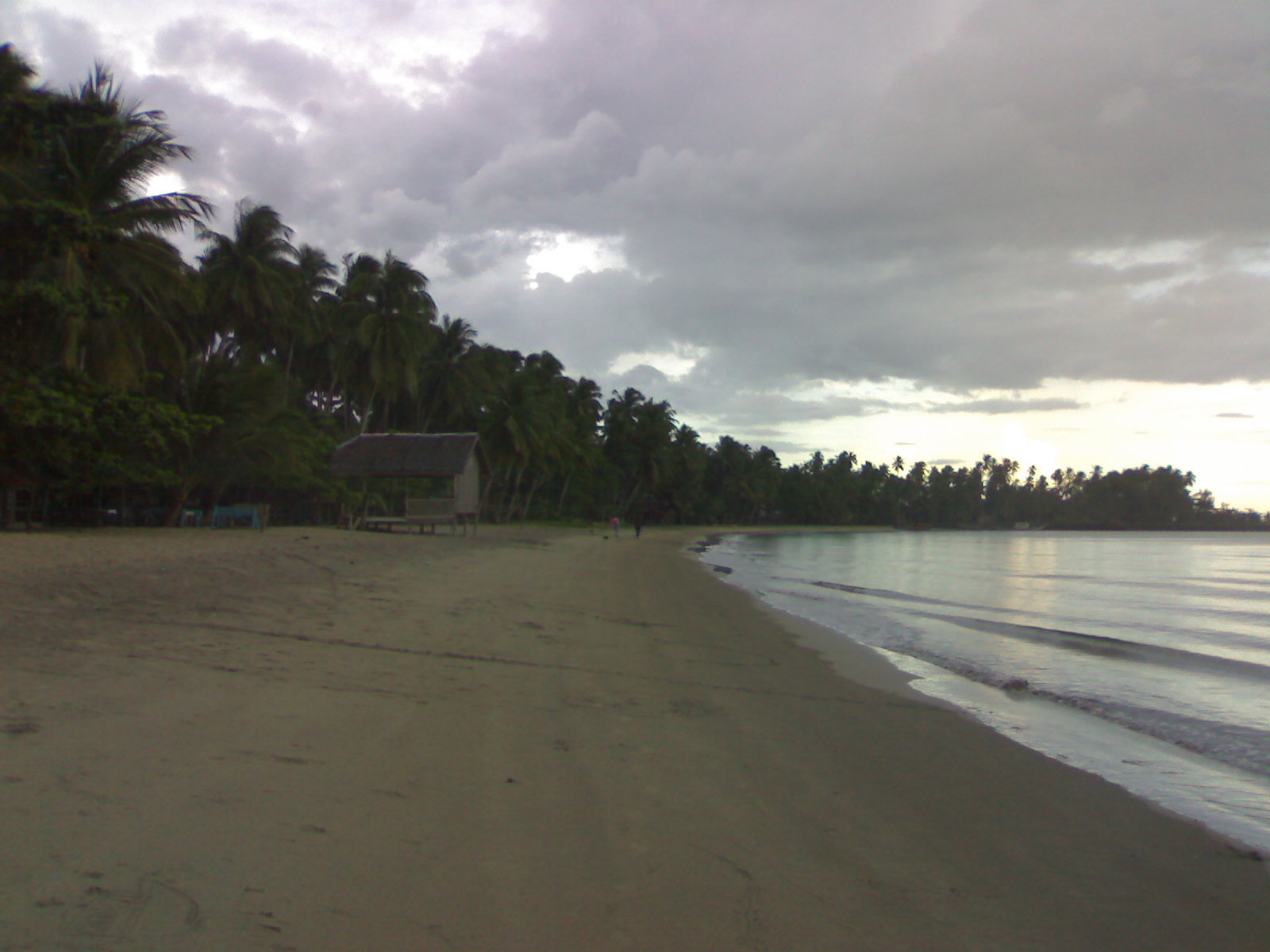 There were no local tourists at that time yet, just local residents occasionally sampling the sand and surf amidst the rather decrepit and run-down houses that marked the small village that ran along the edge of the shoreline. Quiet and idyllic times that were apparently never intended to last.
There were no local tourists at that time yet, just local residents occasionally sampling the sand and surf amidst the rather decrepit and run-down houses that marked the small village that ran along the edge of the shoreline. Quiet and idyllic times that were apparently never intended to last.The 1990's came and landlubbers from many of the towns around Lianga discovered the beaches of Pugad and the owners of the beach properties in that area rushed to accommodate the sudden influx of vacationers and visitors. Small sea cottages and eventually more elaborate structures began to appear along the entire length of the main beach.
But everything there has a rushed, unplanned and even haphazard air about it. As if the cottages and buildings were simply built overnight and with nary a thought for aesthetics or long ranged planning and development. There is a helter-skelter quality about all of it that depresses and disturbs the soul.
Silt from the construction of a nearby shipping port and pier have imparted a slight, darkish tint to the once flawlessly white sand and instead of the quiet and serenity that one seeks to find in communion with the sun, the gentle breeze and sea, one has to contend with the blaring noise and thumping music of makeshift karaoke bars raging on throughout much of the day and often late into the night.
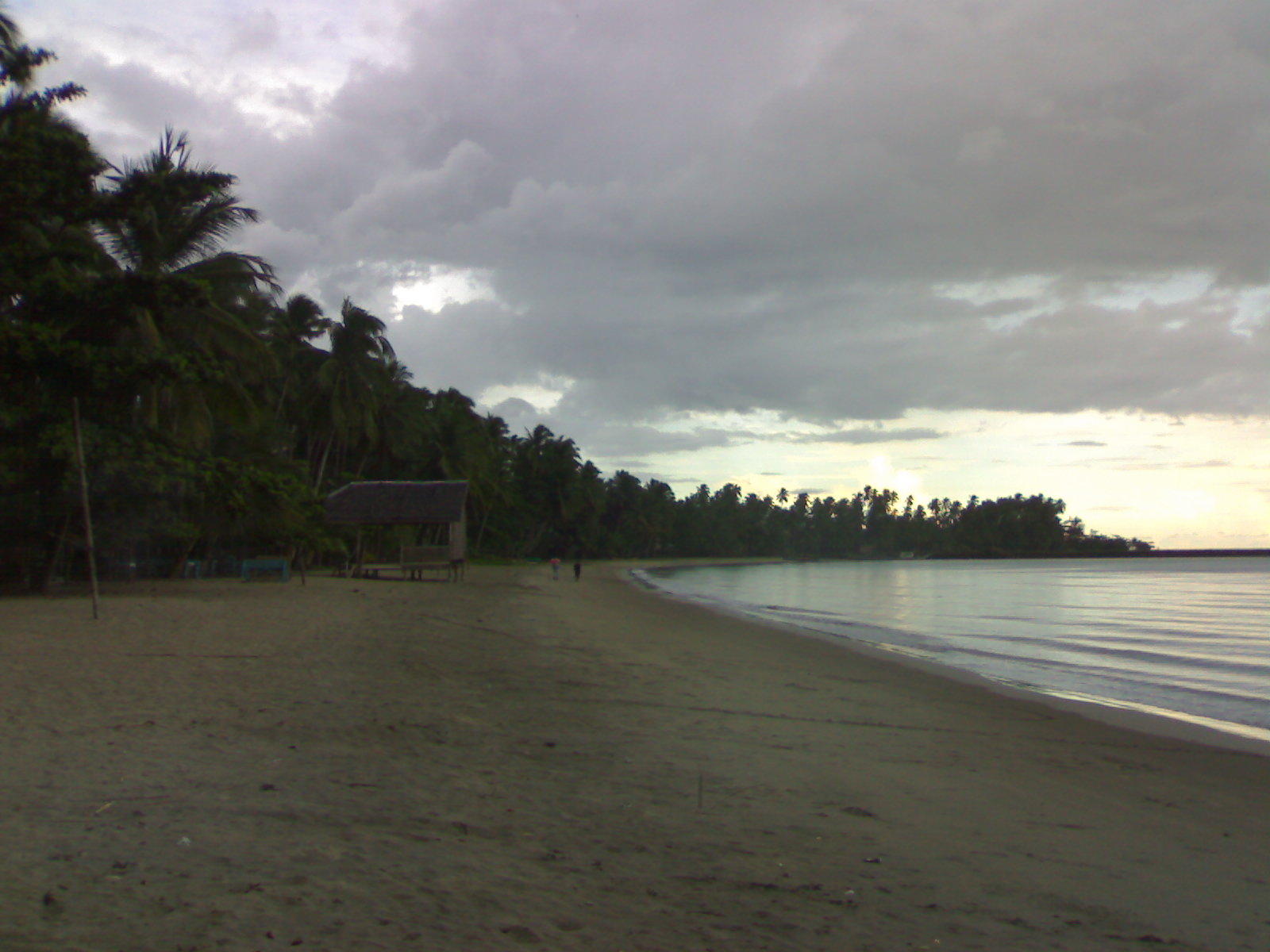 Nowadays the best time to visit the beach is in the middle of the work week and during the early morning hours of the day. It is during these times in the muted light of dawn when one catches glimpses of the magnificence and the echoes of the glory that Pugad once had. Then the dawning light of day suddenly comes and the harsh reality is suddenly laid bare for all to see.
Nowadays the best time to visit the beach is in the middle of the work week and during the early morning hours of the day. It is during these times in the muted light of dawn when one catches glimpses of the magnificence and the echoes of the glory that Pugad once had. Then the dawning light of day suddenly comes and the harsh reality is suddenly laid bare for all to see.Pugad still remains a popular weekend destination for a lot of people starved for a chance to frolic amidst the sun, wind, waves and surf of the fidgety sea. But I could not shake the deep seated feeling that it could have been something more.
Like the town of Lianga, with which it has always been identified with, one always gets the notion that a lot of pent up potential is there. Yet by the collective will or intransigence of its residents, it simply chose to take the easier and more convenient path to progress and development.
And thus settlling merely for the tempting yet paltry rewards of the fast and easy way rather than the harder and the more difficult road to becoming what it can truly be - a true haven and refuge from the vexations and frustrations of modern life, where the beach and sea are the really main attractions rather than merely the sideshows to a noisy carnival on the sand.
Wednesday, October 10, 2007
Nuts
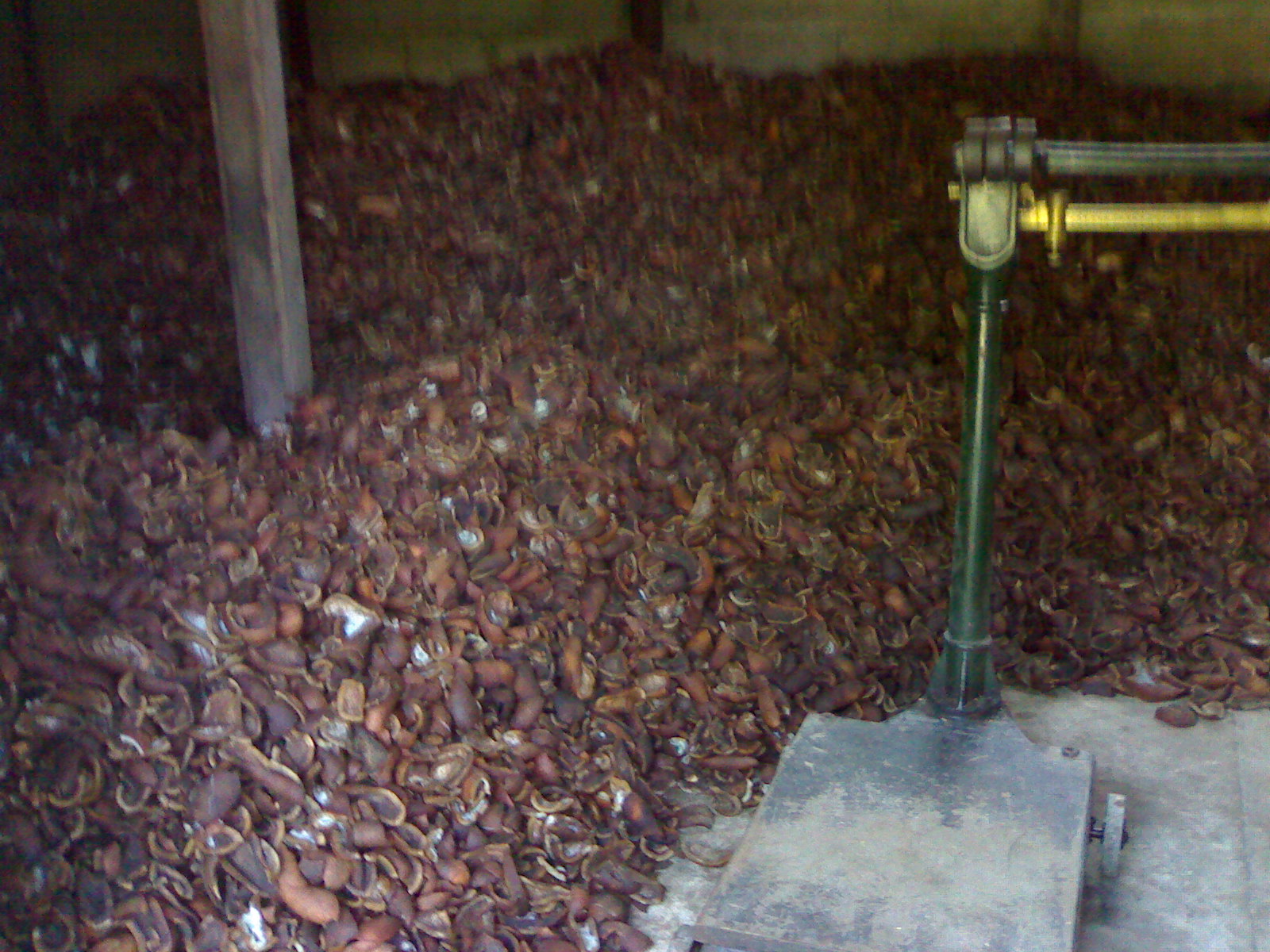 I was in the city and a new acquaintance and I were idly chatting one long and lazy afternoon.
I was in the city and a new acquaintance and I were idly chatting one long and lazy afternoon."So, your family has coconut farms. So what do you actually produce?", he asked me. "We produce copra", I replied as a matter of fact. As I already expected, he scratched his head in bewilderment and out came the inevitable question.
"What the hell is that?"
I had grown up with the sight, sound, feel and touch of coconuts and copra so I am often at a great loss when faced with the task of trying to explain and describe this cash crop to people whose only knowledge of coconuts is often restricted to the buko juice and meat they sample with great relish on rare occasions or to the tame, often fruitless and largely decorative coconut trees seen in many of the beach resorts the urban hordes flock to when they have the time and the money to burn.
Little do they know how many of the household products and food items they have on their homes either contain coconut oil or are produced with the use of such oil or a component or derivative of it. Together with palm trees and soybeans, the humble coconut is one of the world's primary sources of vegetable oil and without the country's coconut farmers, the nation and world would be in great trouble indeed.
Copra is one of the province of Surigao del Sur's primary agricultural cash crops and in most the communities and towns that dot its entire length, thousands of farming families are heavily dependent on the coconut industry for their livelihoods. It is their primary source of income and economic support.
The making of copra from the meat of mature coconuts is a long, tedious, dirty and labor intensive process. From the climbers who have to clamber up each tree and manually select the nuts suitable for harvesting to the laborers who have to clean and split the nuts open and then crape the meat off for curing in makeshift curing huts, the effort that goes into the production of the finished, salable product is extensive and costly.
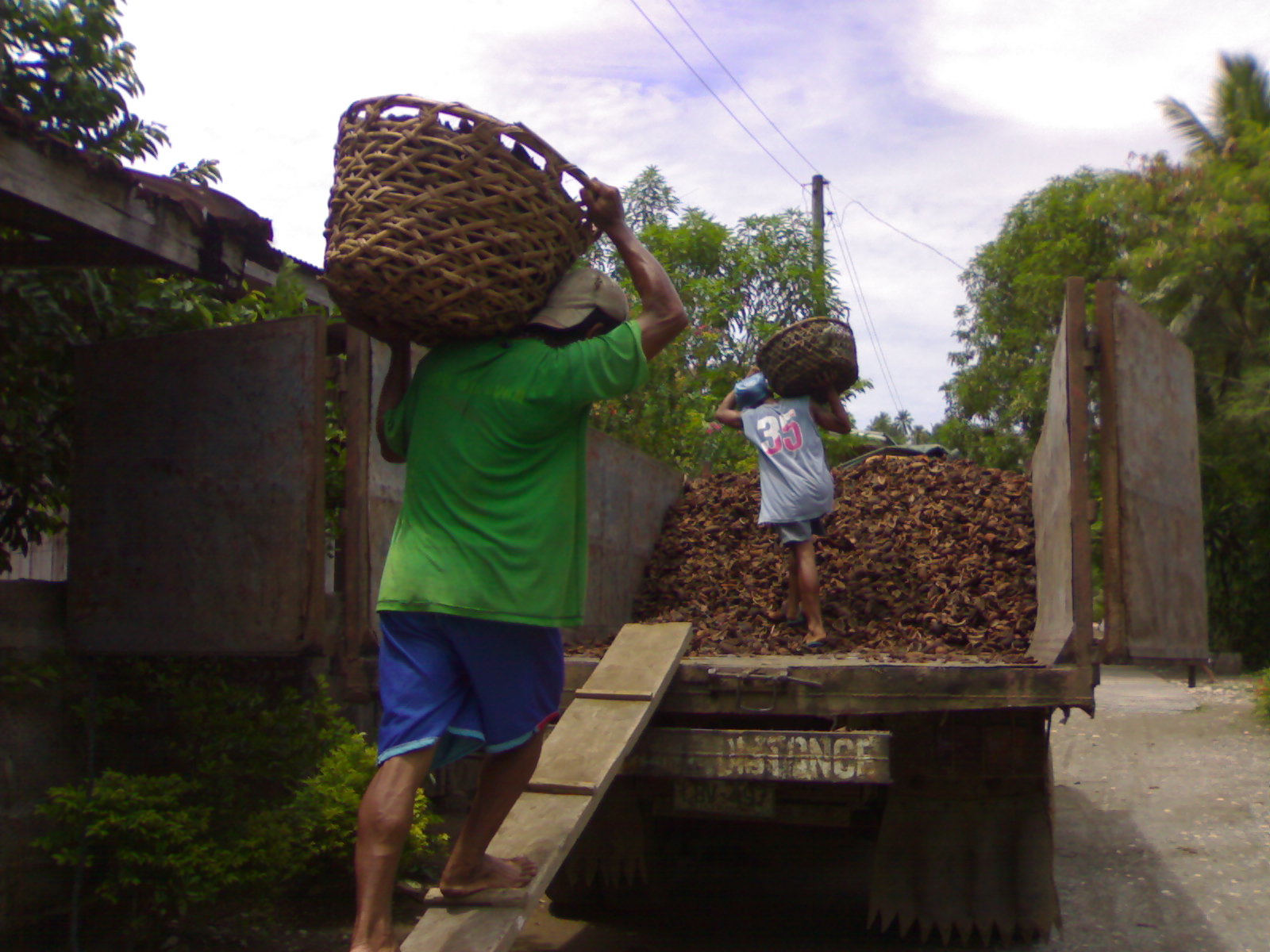 Yet the money the average coconut farmer earns per hectare of coconut land is a mere pittance. Big businessmen and copra traders buy the finished copra at rock bottom prices and then trade or sell them at a huge profit thus leaving the unfortunate farmers always at the losing end of an unfair and obviously exploitative economic relationship.
Yet the money the average coconut farmer earns per hectare of coconut land is a mere pittance. Big businessmen and copra traders buy the finished copra at rock bottom prices and then trade or sell them at a huge profit thus leaving the unfortunate farmers always at the losing end of an unfair and obviously exploitative economic relationship.Yet the men and their families who continue toil and struggle in the coconut plantations and farms all over the province and all over the country constitute a significant portion of the country's agriculture sector. Inspite of that however, they remain essentially voiceless, ruthlessly exploited and miserably ignored even by the government supposedly tasked with the responsibility to look after their welfare and well-being as an integral component of the country's agricultural industry.
So I tried to explain in detail to my new friend the copra making process and the state of the copra industry in my province and the country. To his credit, he did try to really listen and understand but in the end his interest wavered and flagged.
I do not blame him, of course, for his lack of interest. The true and real essence of the coconut industry is not in the finished products and items that copra is a part of. It is in the people in the far, distant and remote farms in the countryside who continue to live their lives and make a lving beneath the fronds of the tree they call the "tree of life".
It is their faces and bodies, stained with sweat colored by the dirt from the lumps of dark-brown, foul smelling and insect-infested coconut meat roasting in the curing huts that flash in my mind when I hear talk about the coconut industry. Call me sentimental but then I would not care less.
There are a lot of people apparently out there who would not be able to call a coconut nut just that......even if it hits them on the head.
Sunday, October 7, 2007
Salvacion
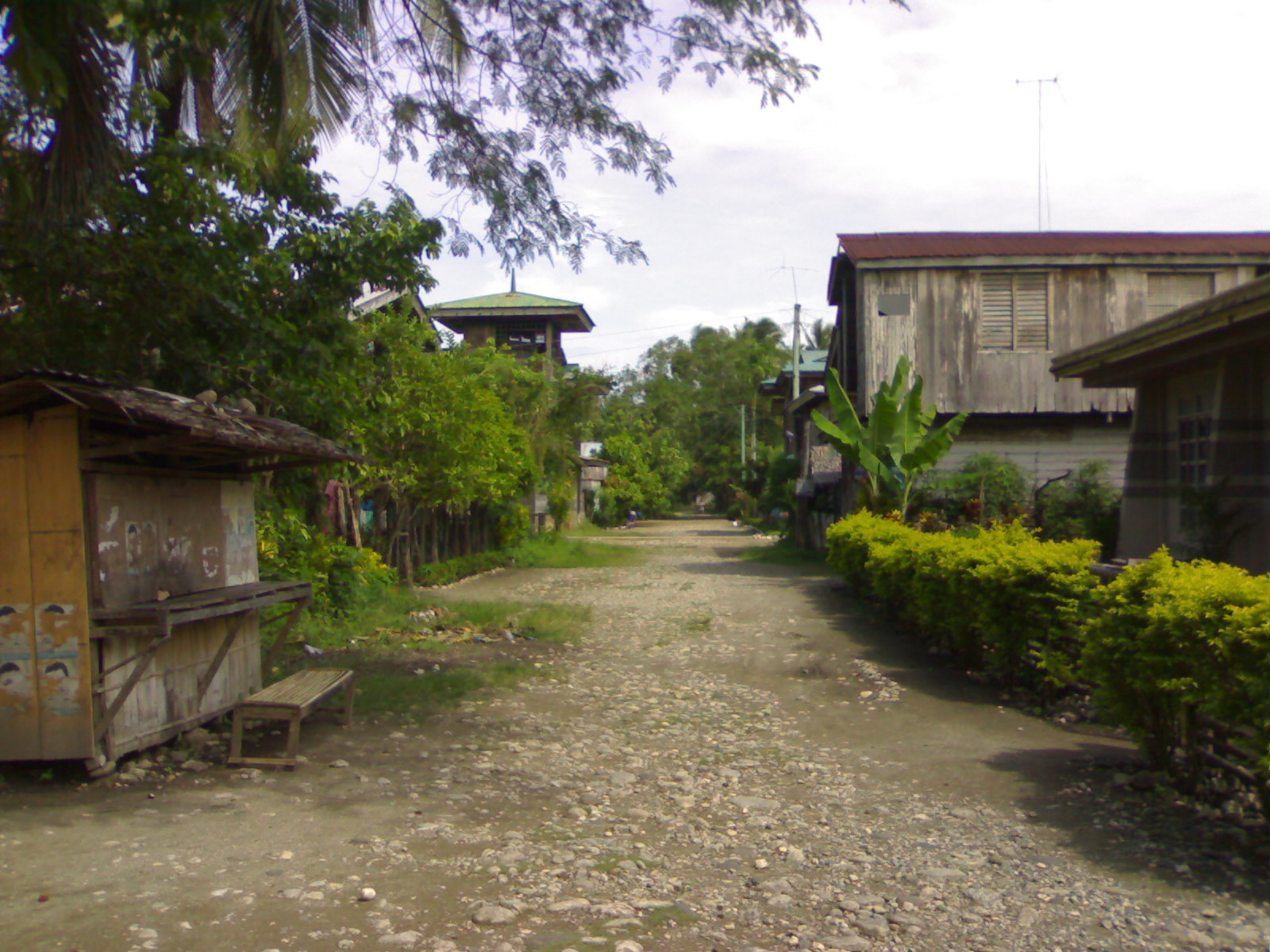 Some twenty dusty and rough kilometers north of Lianga is the small barangay or village of Salvacion. It is actually part of the municipality of San Agustin just six or so kilometers just a little further up the national highway.
Some twenty dusty and rough kilometers north of Lianga is the small barangay or village of Salvacion. It is actually part of the municipality of San Agustin just six or so kilometers just a little further up the national highway.It is a small, quiet and sleepy little village set amidst gently sloping hills mostly planted with coconut trees and surrounded by the yellow-green mosaic of rice fields broken here and there by the dark green of idle and uncultivated land thick with grass, wild shrubs and trees. A typical and little, rustic community in many ways like so many other similar small villages in this part of the Philippine countryside.
My father was born there more than seventy years ago and in many ways he was always tied to it by both sentimental and practical reasons. He did leave Salvacion first temporarily when he went to school in Cebu and Manila then permanently when he got married and transfered his family to Lianga in the early 1960's. But his emotional ties to his home village remained strong. That and the fact that his parents owned real properties around the area insured that he would always be a frequent if somewhat harried visitor always trying to manage the time between his duties as a physician in Lianga and his responsibilities as a gentleman farmer there.
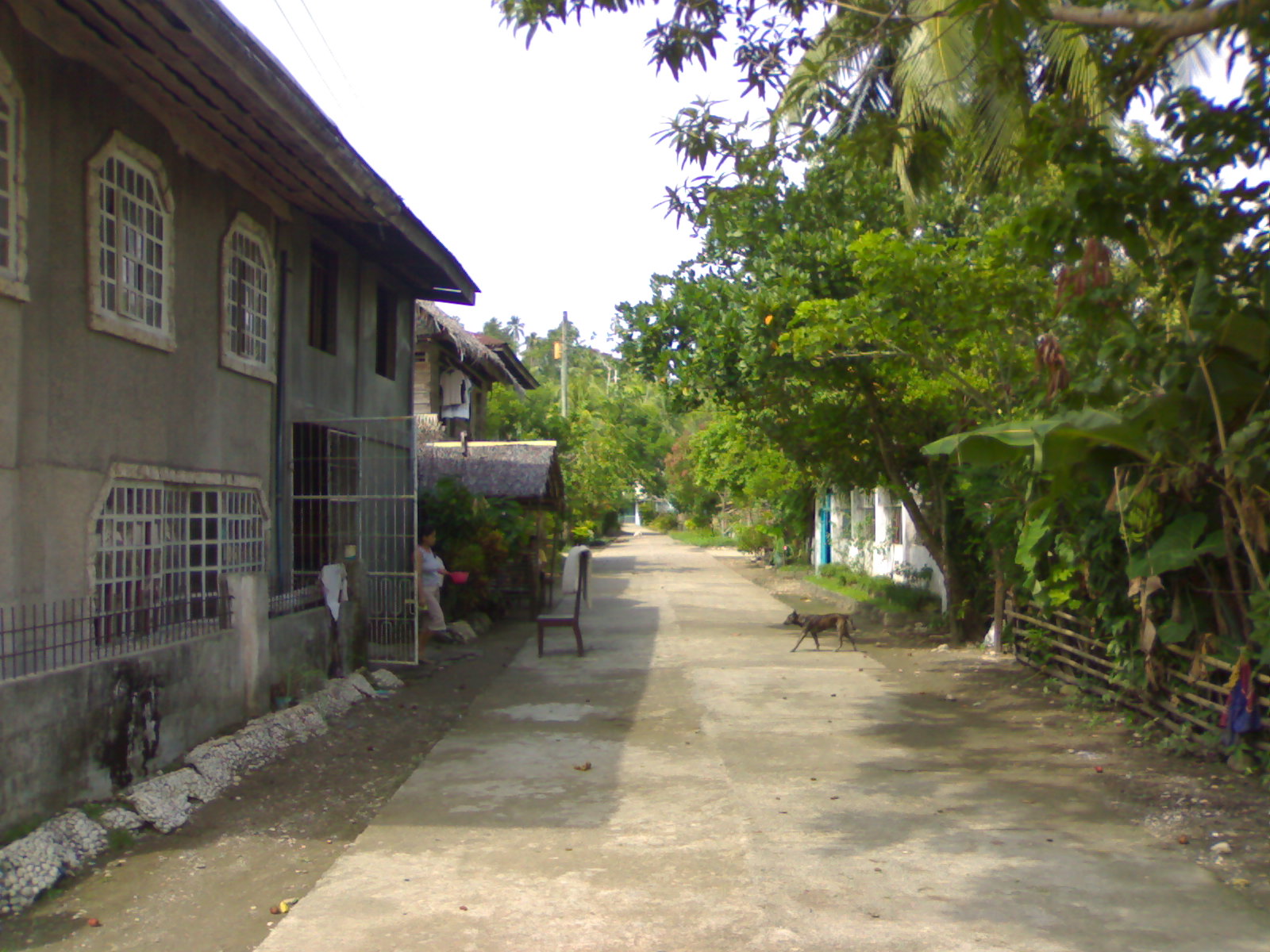 Over the years, my father's focus shifted to his medical practice and his family in Lianga. But Salvacion was still in his mind often. He was there regularly although his life was no longer intrinsically intertwined with that of the village. He had, in many ways, moved on. When he died in 1996, he was buried, like his deceased parents, in his adopted town and not in the village of his birth.
Over the years, my father's focus shifted to his medical practice and his family in Lianga. But Salvacion was still in his mind often. He was there regularly although his life was no longer intrinsically intertwined with that of the village. He had, in many ways, moved on. When he died in 1996, he was buried, like his deceased parents, in his adopted town and not in the village of his birth.Our family still has a house in Salvacion and although it's a bit decrepit from being unused, it remains a testament to our strong sentimental links to the village. I am usually there at least once a week and when I do go there there is always a sense of getting in touch with the roots of the family, the familiar feeling and sense of coming home.
But there is also a sense of alienation, some inner realization that this may be home but the truth is one does not really belong to the place anymore. The person that is inside has grown and changed so much over so many years of exile and sojourn in far and distant places thus the feeling of separation and estrangement. One feels the need to belong once more but also understands that that is, in many ways, no longer possible and might be even impossible to achieve even though the desire and the effort is there.
But still one goes back time and time again because duty and obligation demands it. One sees the old and familiar places, greets old friends and forgotten relatives. One strolls through the quiet, shadowy and dusty streets and breathes in once again the sweet and unspoiled air redolent with the scent of tree leaves and verdant grass. In the distance, one hears as always the distant rumble of the surf and waves of the nearby sea.
Too many memories of times past, some bitter and others sweet. And yet when one goes home there is always a sense of things left undone and uncompleted.
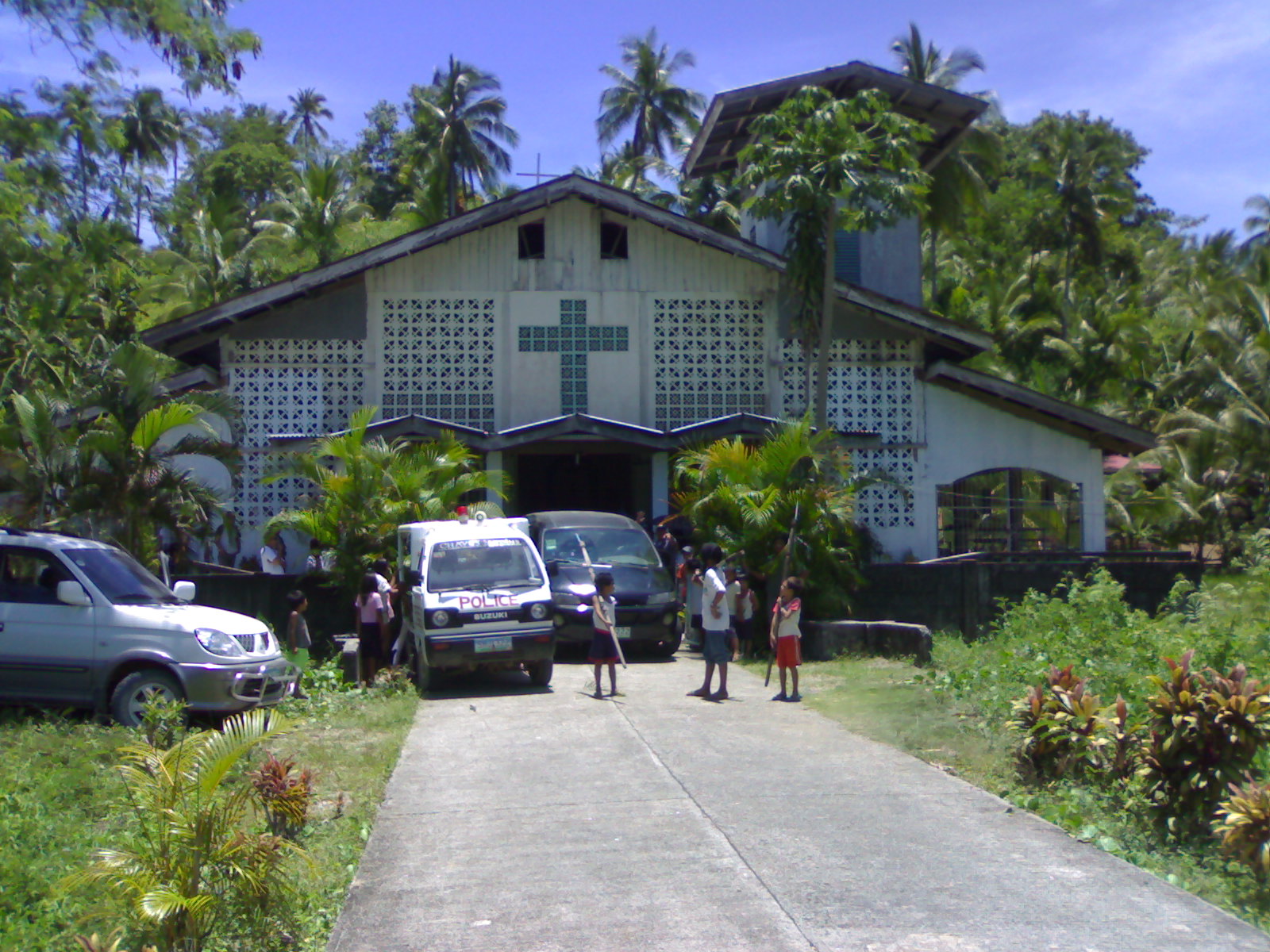 So one returns to visit time and time again to this village by the sea and hills. Not only because he has to but because not to do so is to deny the fact that he is, in a sense, incomplete and this place, whether he likes it or not, is a large piece of that part of him that remains missing.
So one returns to visit time and time again to this village by the sea and hills. Not only because he has to but because not to do so is to deny the fact that he is, in a sense, incomplete and this place, whether he likes it or not, is a large piece of that part of him that remains missing.So like the salmon who swim upstream, risking life and injury, to return to their place of spawning, so does one go back to the place where, for him, everything began. Hoping as always that life will finally come full circle.
And then, by the grace of God, he will be finally and fully complete.
Friday, October 5, 2007
Echoes
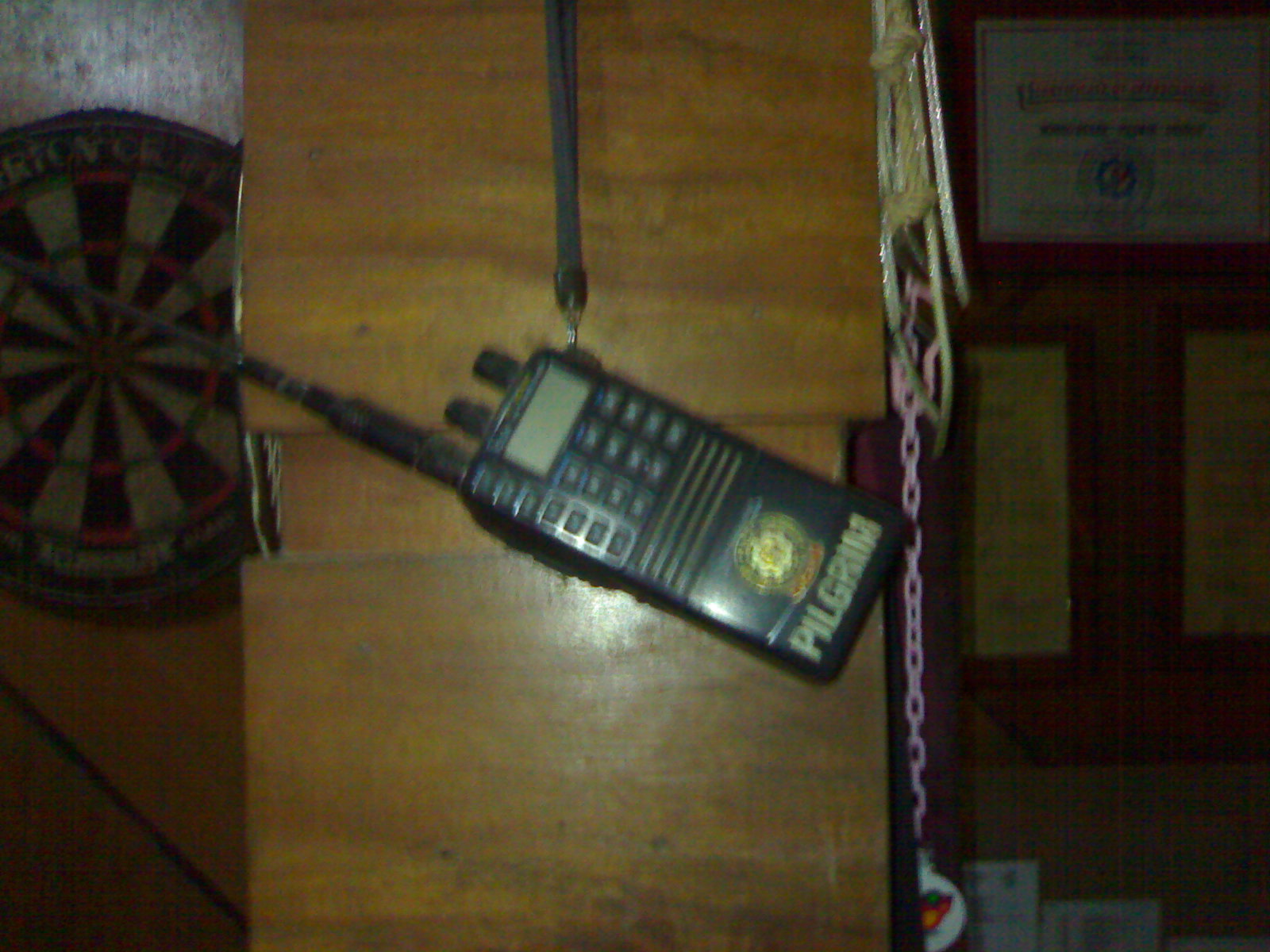 The time was in the early 1990's and in Lianga the people were becoming engulfed in the emerging sense of optimism that was sweeping across the country. There was a sense of things moving finally in the right direction after so many decades of economic hardship and armed conflict between a stubborn Communist insurgency and the armed forces of a distant and often unfelt national and local government.
The time was in the early 1990's and in Lianga the people were becoming engulfed in the emerging sense of optimism that was sweeping across the country. There was a sense of things moving finally in the right direction after so many decades of economic hardship and armed conflict between a stubborn Communist insurgency and the armed forces of a distant and often unfelt national and local government.Cellphones and mobile telecommunications were still science fiction as far as local residents were concerned but the potentials and possibilities of two-way amateur radio communication suddenly made a sudden and explosive impact in this part of the country. It was mobile and portable electronic communications at the most basic and "primitive" level but radio communications, particularly between private persons and entities reached unparalleled levels and the 1990's was, in a sense, its golden age as far as Lianga was concerned.
It was the time of the amateur radio organizations with their base stations and civic radio assistance programs. Their members roamed the town in their uniform vests, their VHF transceivers slung low on their belts and helped the local police and military personnel keep the peace and keep an alert eye out for unsavory, criminal elements.
The roofs of private homes became festooned with radio antennas and aerials as radio enthusiasts began competing with each other in installing the latest and most powerful base radio transceivers. Chatting on the airwaves became the craze as people and communities, at least in the surrounding areas, became connected by voice and sound signals.
The military and police forces gained most from the radio communication craze. They suddenly had access to a readily available and wildly enthusiastic intelligence gathering network to assist them in their efforts to control crime and fight the on-going insurgency. An additional benefit was the improved relations between the law enforcement organizations and the civilian populace - something the government had always wanted to achieve previously but had been largely unable to do so in the wake of the less than savory human rights record these organizations had acquired during the years of the Marcos dictatorship.
The end of the 1990's also saw the sudden decline in the popularity of amateur radio communications in the Lianga area. Many local pundits would point to the introduction of modern mobile phone technology and the emergence of computers and the Internet as the primary reason for the end of Lianga's golden era for radio communications. There is obviously a lot of truth in that observation.
But the fact is it is clear from hindsight that Lianga's love affair with the radio transceiver was destined to be short lived. That technology was just too limited to have long term applications and was, in the final, sense not really cost effective if we view its rather narrow capabilities in comparison to the wide ranging reach of today's telecommunication marvels.
But the era of the "walkie-talkies" despite the fact that it lasted for just under a decade provided a shining opportunity for many of Lianga's residents to really involve themselves in community affairs and marked a period of close cooperation and rapport between the local government and its agencies with non-governmental organizations and ordinary private citizens. It is a sad thing thing to note here that that high degree of closeness and trust may be exceptionally difficult to reestablish once again today.
I was among many who were there more than a decade ago in Lianga when for a short period of time the air over the town hummed and throbbed to the energy of radio signals zipping back and forth over the hills, over the houses and across the coastal sea. There was a vibrant energy and vitality there as the nearby communities swapped messages and greetings openly through the ether. There was a sense of solidarity and community that is notably absent today.
Sometimes nowadays I still have the rare opportunity to use the radio transceivers that I still have in the house. When I press the switch to transmit I still often feel the excitement and the romance of those early days of wireless communications.
And despite the futility of the effort, I always try to listen once again for the faint echoes of the past. A past and a time when the radio transceiver was king and we held its power in our hands.
Monday, September 17, 2007
Perpetual Frustration
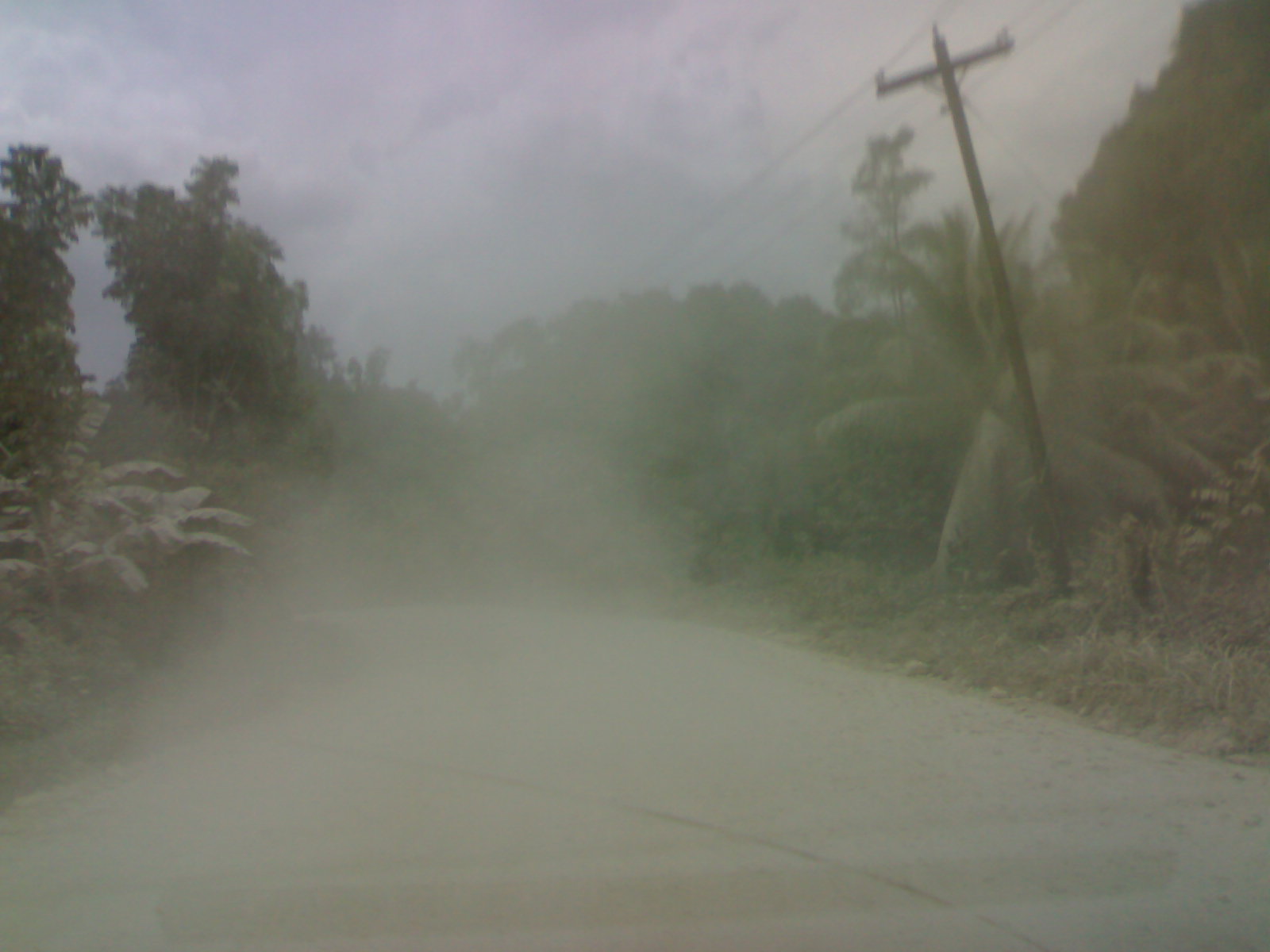 The past week or so I have been traveling a lot in and around the Lianga area and once again,
The past week or so I have been traveling a lot in and around the Lianga area and once again,like so many of the local residents here, as well as the occasional visitor who unfortunately had the unique experience of coming to this part of the country, I had the urge to tear at my hair and scream with frustration at the miserable state of the local roads. I am particularly referring here to the portion of the national highway servicing most of the first district of the province of Surigao del Sur to which Lianga has the misfortune to belong.
At first it was all potholes and rocky bumps all throughout the area's unpaved gravel roads. Then weeks and weeks of unremitting sunshine and no rain plus the government's feeble attempts to dump inadequate amounts of gravel on some of the critically damaged road sections only led to the turning of the gravel into a layer of fine dust that can make traveling on them like a journey into the depths of the Sahara dessert in the midst of a raging dust storm.
Passengers on public and private vehicles with open windows and no air conditioning going through these roads have to cover themselves up like Bedouins or ninja warriors or face the prospect of choking on the fine dust and arriving at their destinations looking like victims of a talcum dust explosion. Either way it is certainly not a fun experience.
Inevitably the ire of the local residents get logically and properly focused on the local government and their elected offcials who, in the past, may have been dragging their feet with regards to the task of modernizing the province's road network. They cannot understand why the road networks in most if not all of the surrounding provinces have already been concreted and even expanded and beautified while they, on the other hand, have to contend on a daily bais with rough, primitive and absolutely disgusting dirt roads.
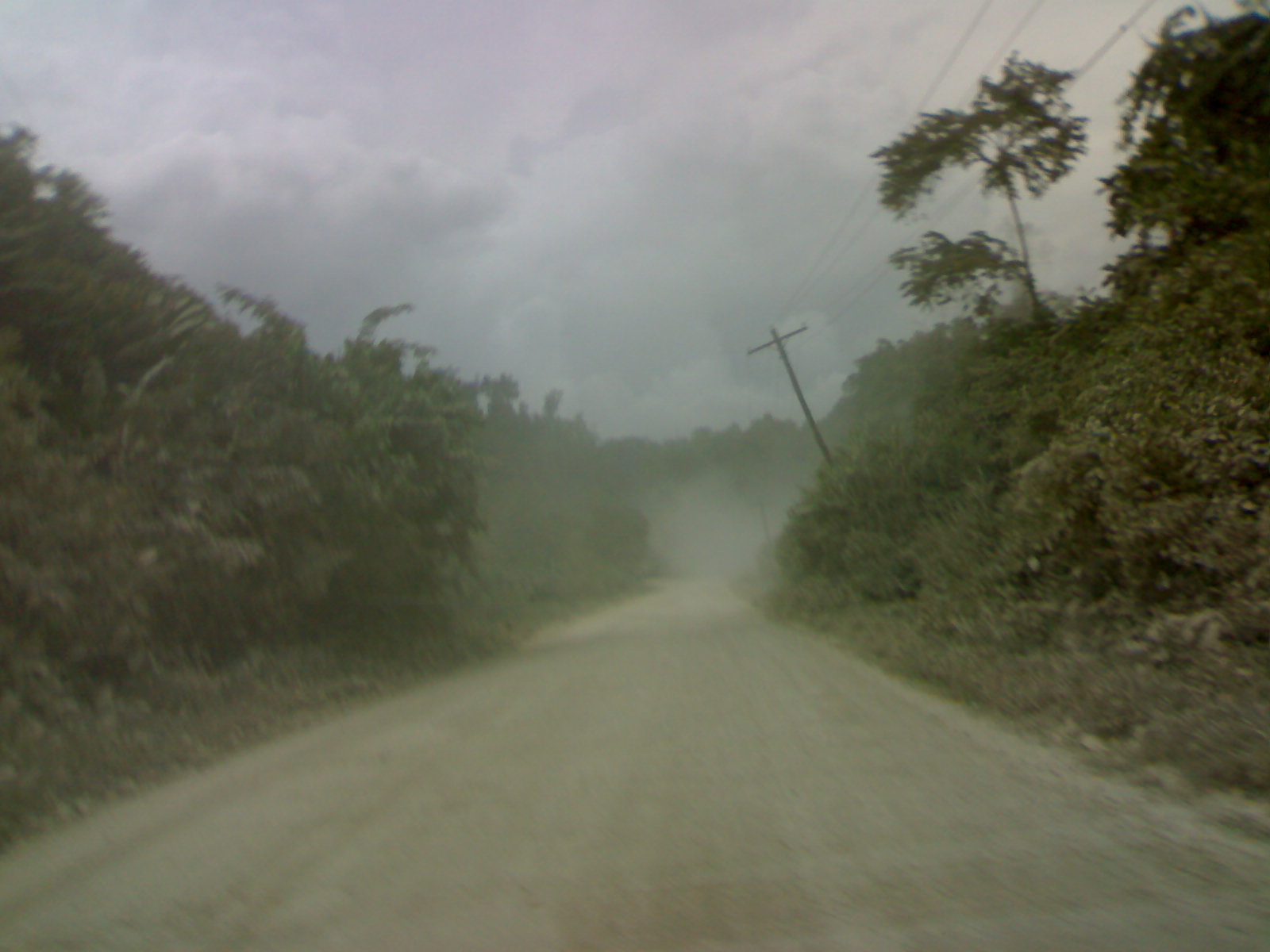 Governor Pimentel, Congressman Pichay and the rest of the province's local officials have their work cut out for them and the people of their constituency are up to their necks in frustration at the decades worth of false promises coming from politicans like them to improve and upgrade the area's road system. Enough of the campaign promises and sweet talk. Just get it done!
Governor Pimentel, Congressman Pichay and the rest of the province's local officials have their work cut out for them and the people of their constituency are up to their necks in frustration at the decades worth of false promises coming from politicans like them to improve and upgrade the area's road system. Enough of the campaign promises and sweet talk. Just get it done!I have been reliably told by officials from the district office of the Department Public Works and Highways in the provincial capital of Tandag that by 2010 the concreting of most of the provincial highway system which has already been programmed will be completed. It is said that work on many of the problematic road sections is scheduled to start any time soon.
I told them that I am very glad to hear the good news but I am not particularly eager to celebrate the news and jump with joy at the prospect of a fully modernized road system servicing the Lianga area and the entire province. You see, I have heard the same promises before so may times. And just like the so many of my fellow province mates who have become wary of such announcements, I prefer to wait and see what happens.
This time really I need to see before I will believe.
Thursday, September 13, 2007
A Lethargic Kind Of Life
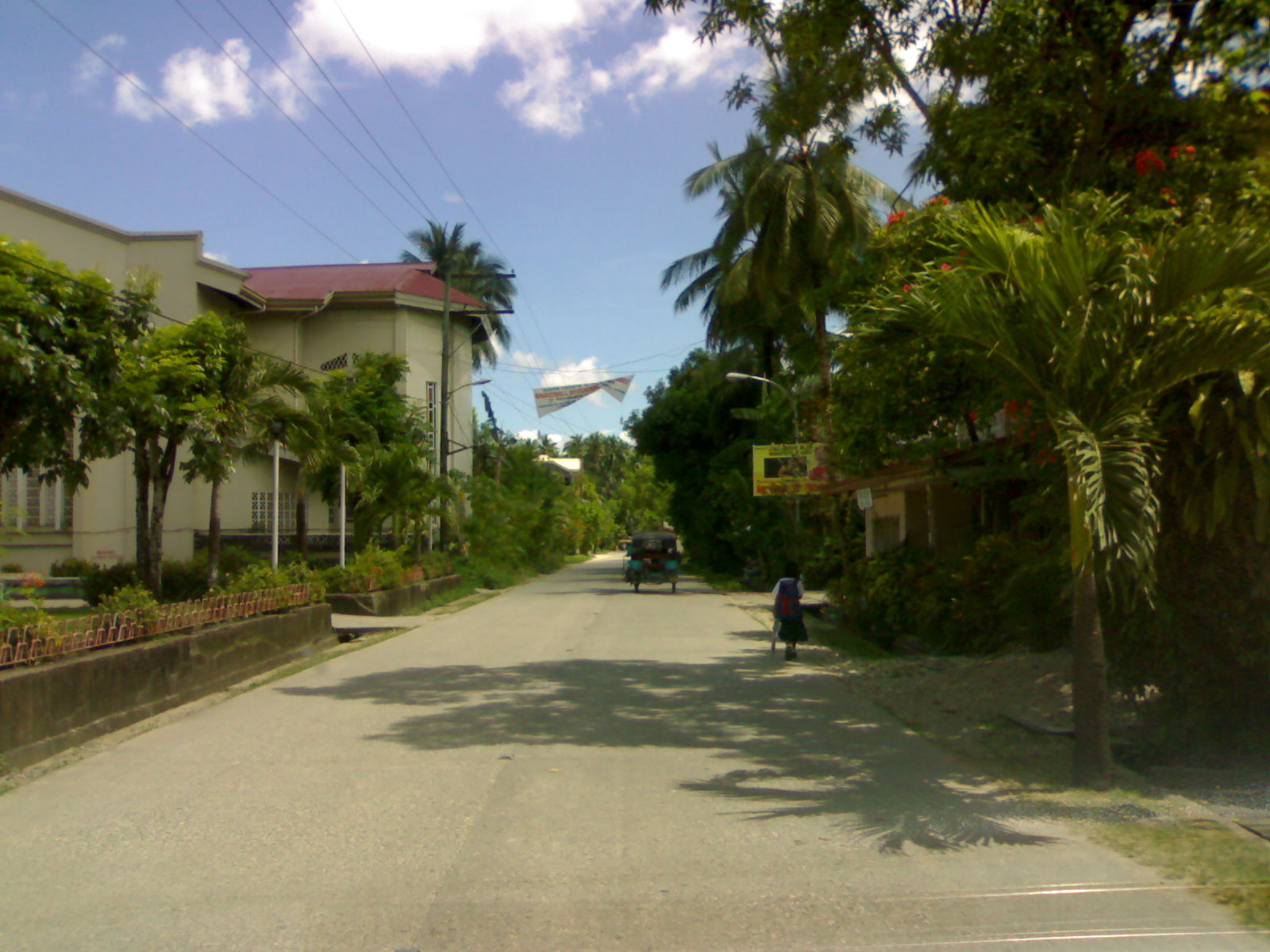 "How can you live in a place like this?", a friend visiting me in Lianga once asked me while incredulously shaking his head. "Nothing happens here!" I made no comment because If I told him why he would probably not understand my reasons or worse, not believe them.
"How can you live in a place like this?", a friend visiting me in Lianga once asked me while incredulously shaking his head. "Nothing happens here!" I made no comment because If I told him why he would probably not understand my reasons or worse, not believe them.The fact is a lot of things happen in Lianga but they happen at a much slower pace than the frenetic and almost manic tempo of life in the cities and more urbanized environments. And that fact, depending on your own particular viewpoint and perspective, can be both a blessing and a curse.
Take Barobo for example. This town just fifteen kilomenters southwest of Lianga is a beehive of activity at almost all hours of the day. The streets are always buzzing with people, both local residents and visitors, rushing about their business. The main street is often choked with all kinds of vehicles and the public market is most often awash with shoppers and bystanders.
Lianga, on the other hand, is almost like a ghost town in comparison. The pictures here were taken in the middle of the day yet the streets look almost deserted. Unnerving and even almost surrealistic if you are not used to it.
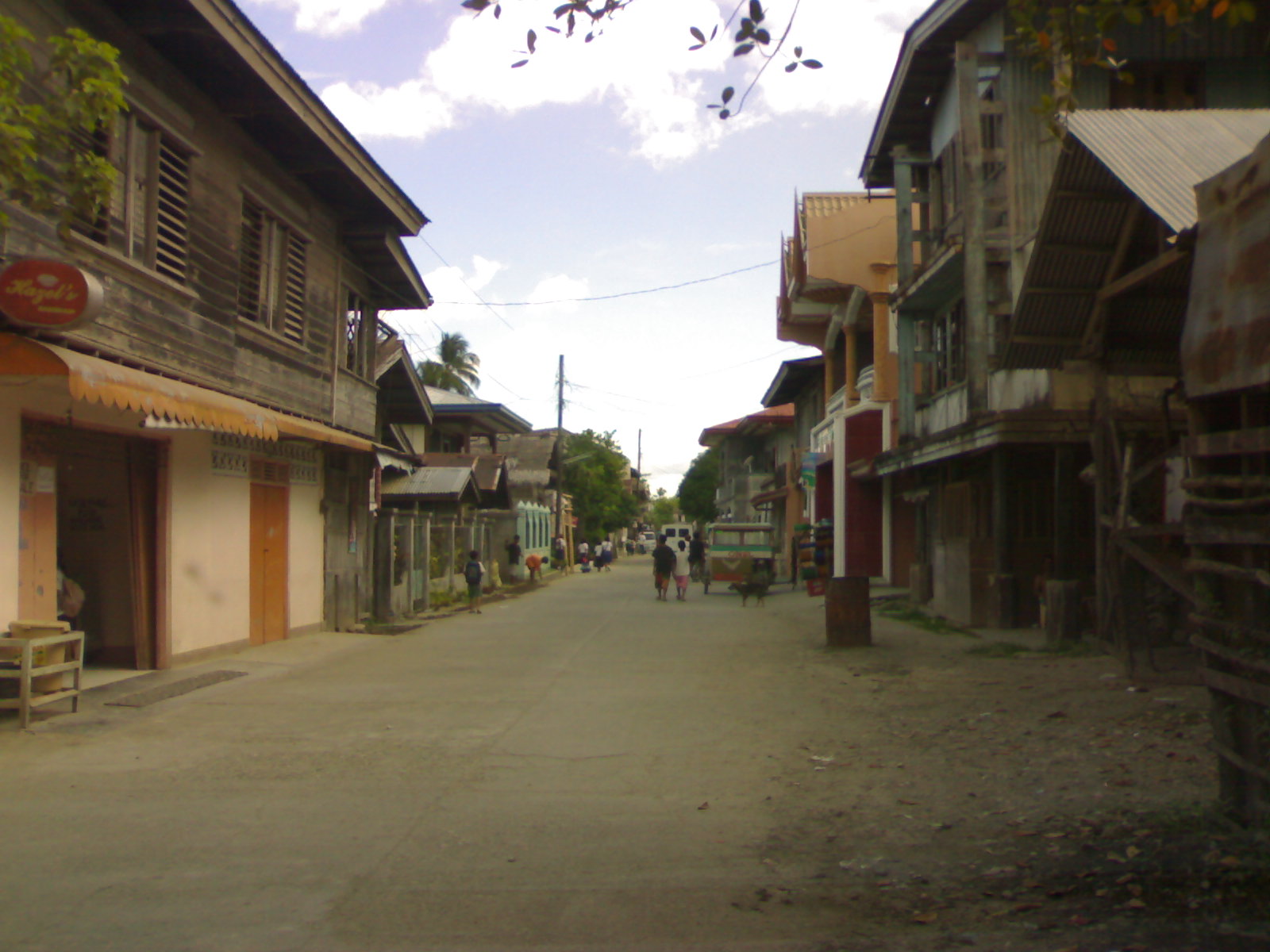
Yet it is this desolate and lethargic quality that give the town its own unique charm. For in Lianga, time seems to move at a more sedate pace and the hustle and bustle of the city has no place or relevance. It is a place that encourages rest, meditation and the soothing of souls scarred and wearied by the demands of lives lived in the fast lane.
I have lived in Lianga for more than a decade and in many ways I have come to live with and even appreciate its rural and rustic character. There are those, of course, who may not share the same view.
But Lianga has always been what it is. Like an obnoxious, stubborn and aged crone, it placidly goes on and limps on resolutely and with nary a care or thought for the views and opinions of the outside world.
Come to think of it, why should it care though? It may be slow, old and decrepit but it is also tenacious and stubborn, clinging to life and existence with the dogged persistence of someone who does not know better.
That has always beens its greatest virtue.
Friday, September 7, 2007
Boiling Hot
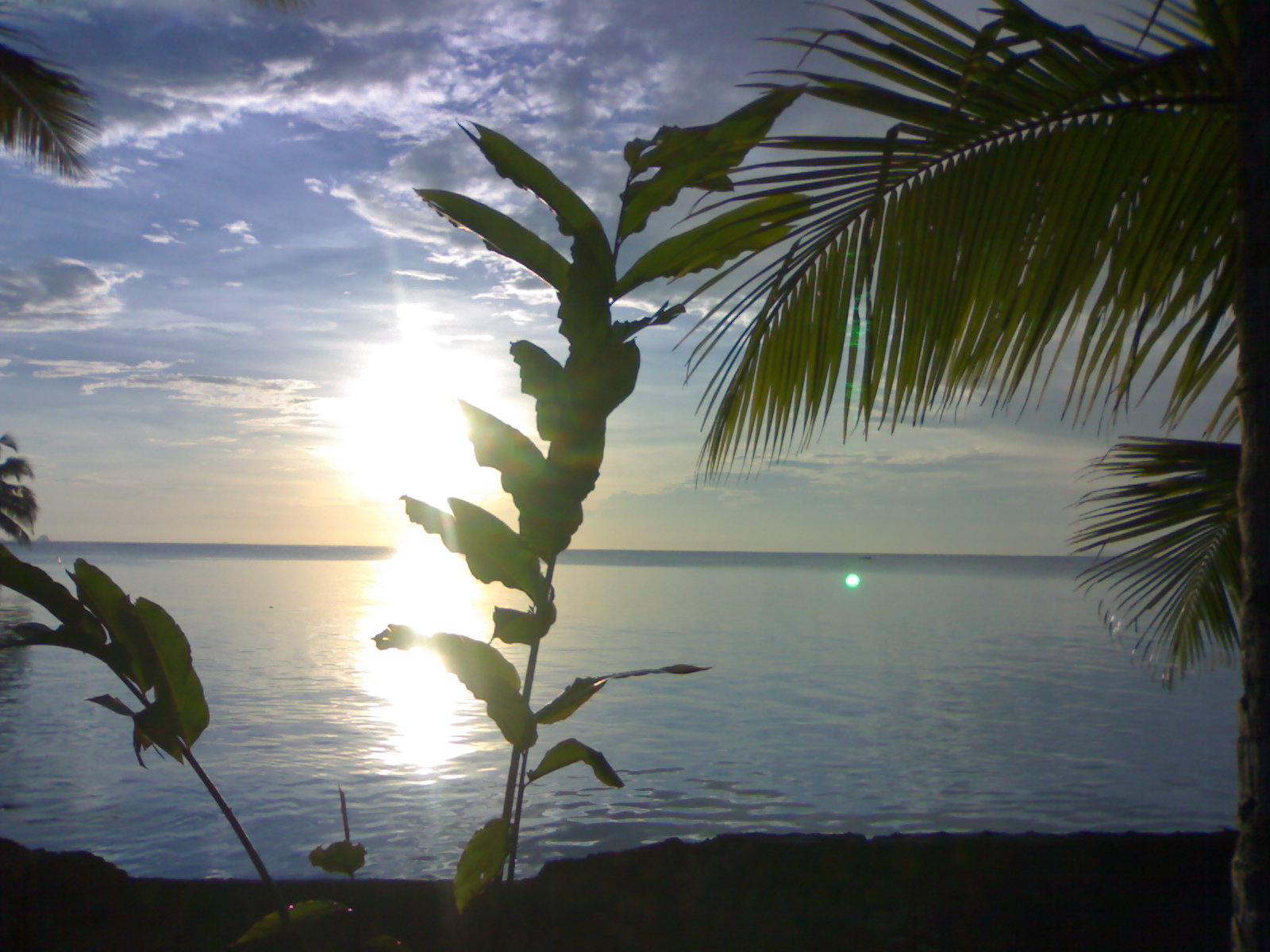 After being away from Lianga for a week or so and after sweating through the heat and congestion of the city, I came home with the expectation of finally being, once again, to be able to sinfully enjoy the coolness and tranquility of life in this rustic town by the sea. I was, however, destined to be sorely disappointed.
After being away from Lianga for a week or so and after sweating through the heat and congestion of the city, I came home with the expectation of finally being, once again, to be able to sinfully enjoy the coolness and tranquility of life in this rustic town by the sea. I was, however, destined to be sorely disappointed.For if there is one thing that is a physically draining constant in Lianga these days, it is the persistent heat, the blazingly hot sun in the midst of cloudless skies and the lack of even a hint of refreshing rain. It is as if the town is in the middle of a long, hot and unending summer.
There are, of course, those who rejoice in the rainless and swelteringly warm days that follow one after the other. The local beaches are full of their breed and you can see them frolicking in the waves or running half naked or scantily clothed across the sunbaked sand.
I, personally, have no objection to hot and parched days like the ones we in Lianga are having now. But too much of this good thing can be.....well....a bit too much.
Would it be too much to ask if we here can have today or tomorrow or even for just an hour or so the drenching goodness of a good and hard rain shower? Even just a teeny tiny bit of rain would be nice if we can have one. Please?
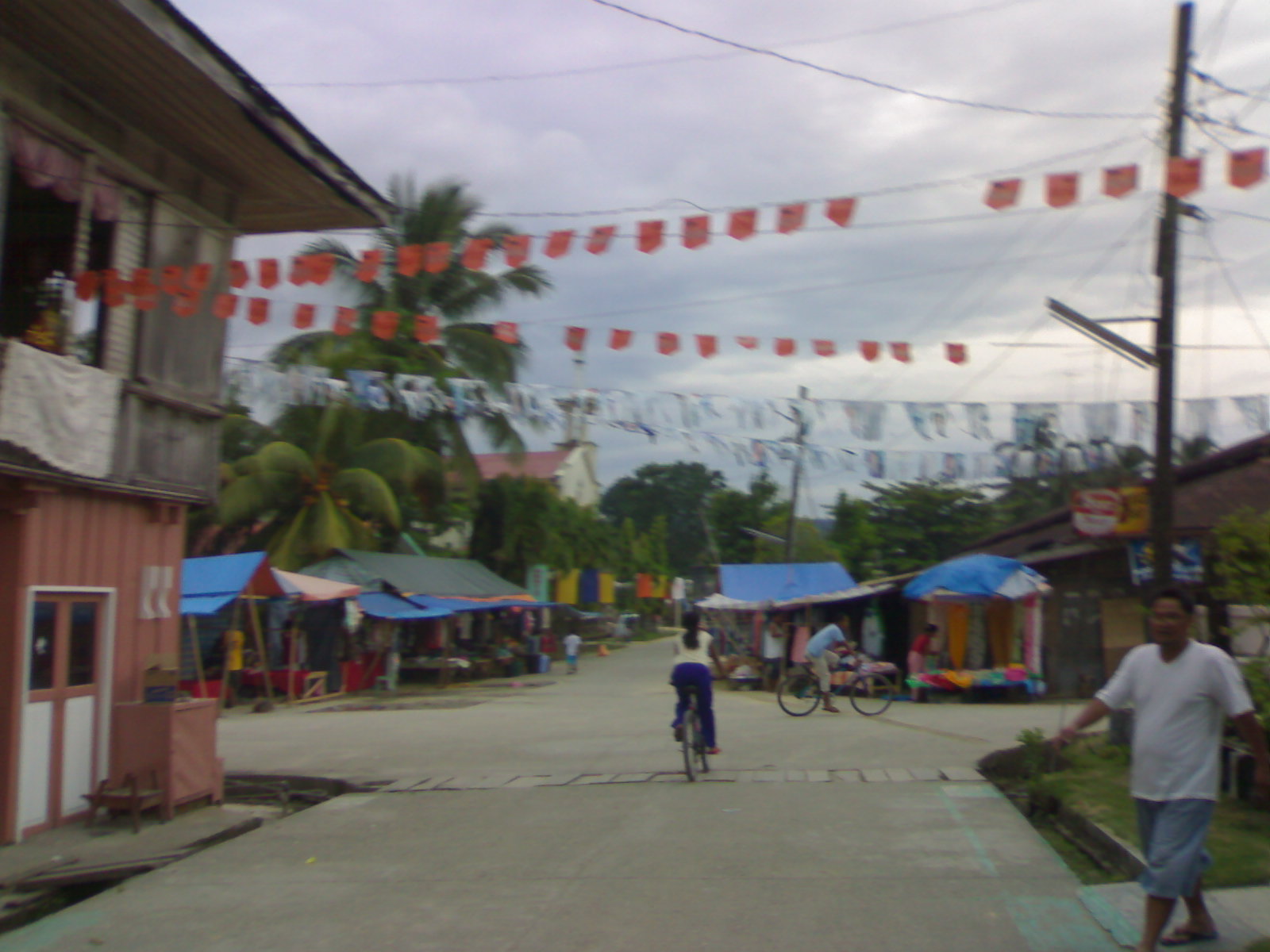 In the meantime though Lianga swelters and perspires while air conditioners and electric fans hum and rattle all day long. Yet whatever the delicious relief from the remorseless heat they offer is merely temporary and costly as well.
In the meantime though Lianga swelters and perspires while air conditioners and electric fans hum and rattle all day long. Yet whatever the delicious relief from the remorseless heat they offer is merely temporary and costly as well.What is needed is needed is a good rain. And yet from what I see from outside my window, that is something that may be no more than, on my part, wishful thinking.
Subscribe to:
Posts (Atom)